Frequent persons on Russia's street signs
countries
233 names / 27243 streets
Vladimir Lenin
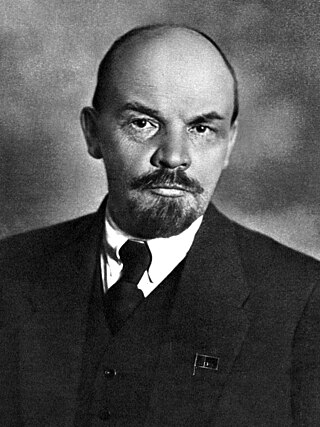 2495
Vladimir Ilyich Ulyanov, better known as Vladimir Lenin, was a Russian revolutionary, Soviet politician, and political theorist who was the founder and first leader of the Russian Soviet Federative...
2495
Vladimir Ilyich Ulyanov, better known as Vladimir Lenin, was a Russian revolutionary, Soviet politician, and political theorist who was the founder and first leader of the Russian Soviet Federative...
Yuri Gagarin
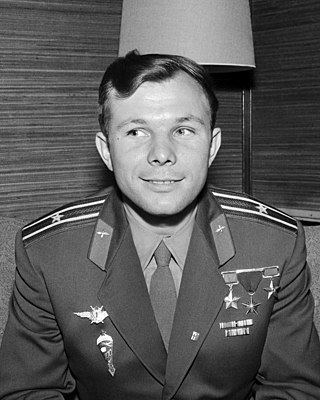 1278
Yuri Alekseyevich Gagarin was a Soviet pilot and cosmonaut who, aboard the first successful crewed spaceflight, became the first human to journey into outer space. Travelling on Vostok 1, Gagarin...
1278
Yuri Alekseyevich Gagarin was a Soviet pilot and cosmonaut who, aboard the first successful crewed spaceflight, became the first human to journey into outer space. Travelling on Vostok 1, Gagarin...
Sergei Kirov
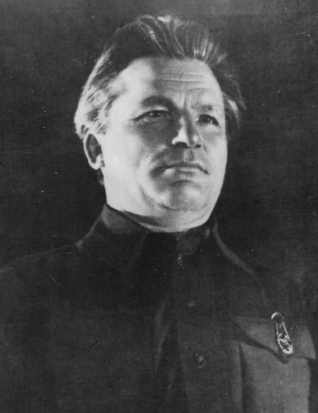 1045
Sergei Mironovich Kirov was a Russian and Soviet politician and Bolshevik revolutionary.
1045
Sergei Mironovich Kirov was a Russian and Soviet politician and Bolshevik revolutionary.
Alexander Pushkin
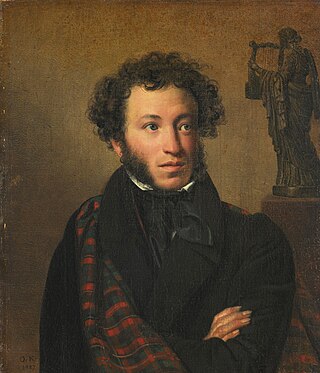 923
Alexander Sergeyevich Pushkin was a Russian poet, playwright, and novelist of the Romantic era. He is considered by many to be the greatest Russian poet, as well as the founder of modern Russian...
923
Alexander Sergeyevich Pushkin was a Russian poet, playwright, and novelist of the Romantic era. He is considered by many to be the greatest Russian poet, as well as the founder of modern Russian...
Maxim Gorky
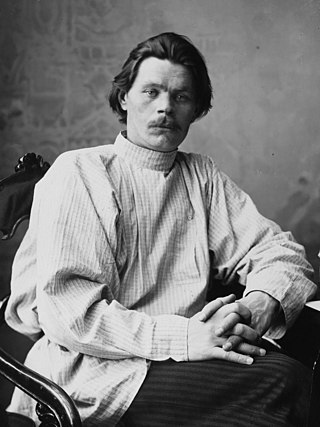 914
Alexei Maximovich Peshkov, popularly known as Maxim Gorky, was a Russian and Soviet writer and socialism proponent. He was nominated five times for the Nobel Prize in Literature. Before his success...
914
Alexei Maximovich Peshkov, popularly known as Maxim Gorky, was a Russian and Soviet writer and socialism proponent. He was nominated five times for the Nobel Prize in Literature. Before his success...
Mikhail Kalinin
 879
Mikhail Ivanovich Kalinin was a Soviet politician and Russian Old Bolshevik revolutionary. He served as head of state of the Russian Soviet Federative Socialist Republic and later of the Soviet Union...
879
Mikhail Ivanovich Kalinin was a Soviet politician and Russian Old Bolshevik revolutionary. He served as head of state of the Russian Soviet Federative Socialist Republic and later of the Soviet Union...
Vasily Chapayev
 707
Vasily Ivanovich Chapayev or Chapaev was a Russian soldier and Red Army commander during the Russian Civil War.
707
Vasily Ivanovich Chapayev or Chapaev was a Russian soldier and Red Army commander during the Russian Civil War.
Karl Marx
 671
Karl Marx was a German-born philosopher, economist, political theorist, historian, sociologist, journalist, and revolutionary socialist. His best-known works are the 1848 pamphlet The Communist...
671
Karl Marx was a German-born philosopher, economist, political theorist, historian, sociologist, journalist, and revolutionary socialist. His best-known works are the 1848 pamphlet The Communist...
Mikhail Lermontov
 525
Mikhail Yuryevich Lermontov was a Russian Romantic writer, poet and painter, sometimes called "the poet of the Caucasus", the most important Russian poet after Alexander Pushkin's death in 1837 and...
525
Mikhail Yuryevich Lermontov was a Russian Romantic writer, poet and painter, sometimes called "the poet of the Caucasus", the most important Russian poet after Alexander Pushkin's death in 1837 and...
Felix Dzerzhinsky
 517
Felix Edmundovich Dzerzhinsky, nicknamed "Iron Felix", was a Bolshevik revolutionary and politician. From 1917 until his death in 1926, he led the first two Soviet secret police organizations, the...
517
Felix Edmundovich Dzerzhinsky, nicknamed "Iron Felix", was a Bolshevik revolutionary and politician. From 1917 until his death in 1926, he led the first two Soviet secret police organizations, the...
Valery Chkalov
 508
Valery Pavlovich Chkalov was a test pilot awarded the title Hero of the Soviet Union (1936).
508
Valery Pavlovich Chkalov was a test pilot awarded the title Hero of the Soviet Union (1936).
Yakov Sverdlov
 490
Yakov Mikhailovich Sverdlov was a Bolshevik Party administrator and chairman of the All-Russian Central Executive Committee from 1917 to 1919. He is sometimes regarded as the first head of state of...
490
Yakov Mikhailovich Sverdlov was a Bolshevik Party administrator and chairman of the All-Russian Central Executive Committee from 1917 to 1919. He is sometimes regarded as the first head of state of...
Ivan Michurin (biologist)
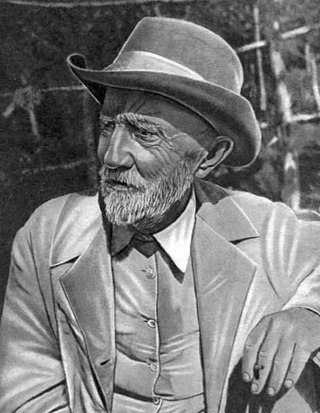 483
Ivan Vladimirovich Michurin was a Russian practitioner of selection to produce new types of crop plants, Honorable Member of the Soviet Academy of Sciences, and academician of the Lenin All-Union...
483
Ivan Vladimirovich Michurin was a Russian practitioner of selection to produce new types of crop plants, Honorable Member of the Soviet Academy of Sciences, and academician of the Lenin All-Union...
Vladimir Mayakovsky
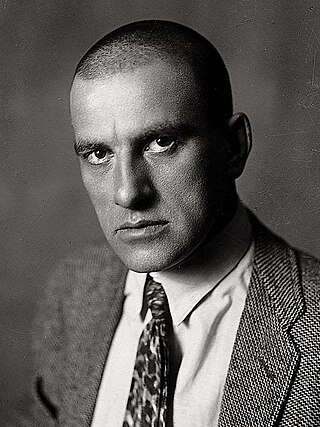 478
Vladimir Vladimirovich Mayakovsky was a Russian and Soviet poet, playwright, artist, and actor.
478
Vladimir Vladimirovich Mayakovsky was a Russian and Soviet poet, playwright, artist, and actor.
Nikolay Nekrasov
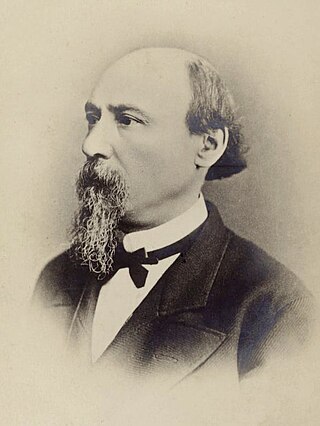 471
Nikolay Alexeyevich Nekrasov was a Russian poet, writer, critic and publisher, whose deeply compassionate poems about the Russian peasantry made him a hero of liberal and radical circles in the...
471
Nikolay Alexeyevich Nekrasov was a Russian poet, writer, critic and publisher, whose deeply compassionate poems about the Russian peasantry made him a hero of liberal and radical circles in the...
Nikolai Gogol
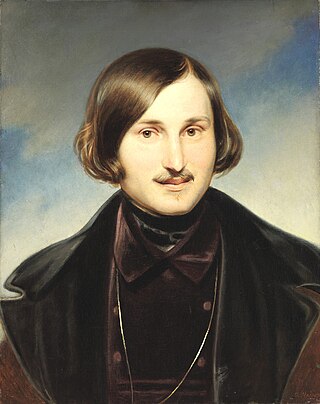 456
Nikolai Vasilyevich Gogol was a Russian novelist, short story writer, and playwright of Ukrainian origin.
456
Nikolai Vasilyevich Gogol was a Russian novelist, short story writer, and playwright of Ukrainian origin.
Mikhail Frunze
 451
Mikhail Vasilyevich Frunze was a Soviet revolutionary, politician, army officer and military theorist. Born to a Bessarabian father and a Russian mother in Russian Turkestan, Frunze attended the...
451
Mikhail Vasilyevich Frunze was a Soviet revolutionary, politician, army officer and military theorist. Born to a Bessarabian father and a Russian mother in Russian Turkestan, Frunze attended the...
Anton Chekhov
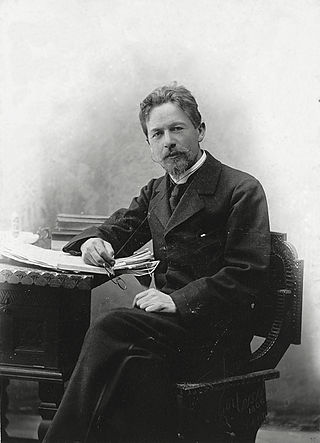 416
Anton Pavlovich Chekhov was a Russian playwright and physician. His career as a playwright produced four classics, and his best short stories are held in high esteem by writers and critics. Along...
416
Anton Pavlovich Chekhov was a Russian playwright and physician. His career as a playwright produced four classics, and his best short stories are held in high esteem by writers and critics. Along...
Nikolai Podgorny
 406
Nikolai Viktorovich Podgorny was a Soviet statesman who served as the Chairman of the Presidium of the Supreme Soviet, the head of state of the Soviet Union, from 1965 to 1977.
406
Nikolai Viktorovich Podgorny was a Soviet statesman who served as the Chairman of the Presidium of the Supreme Soviet, the head of state of the Soviet Union, from 1965 to 1977.
Valerian Kuybyshev
 402
Valerian Vladimirovich Kuybyshev was a Russian revolutionary, Red Army officer, and prominent Soviet politician.
402
Valerian Vladimirovich Kuybyshev was a Russian revolutionary, Red Army officer, and prominent Soviet politician.
Alexander Ostrovsky
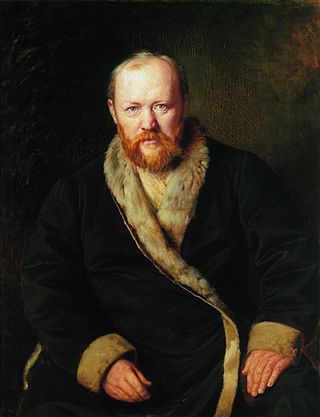 384
Alexander Nikolayevich Ostrovsky was a Russian playwright, generally considered the greatest representative of the Russian realistic period. The author of 47 original plays, Ostrovsky "almost...
384
Alexander Nikolayevich Ostrovsky was a Russian playwright, generally considered the greatest representative of the Russian realistic period. The author of 47 original plays, Ostrovsky "almost...
Leo Tolstoy
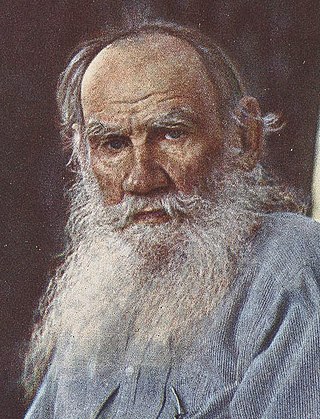 374
Count Lev Nikolayevich Tolstoy, usually referred to in English as Leo Tolstoy, was a Russian writer. He is regarded as one of the greatest and most influential authors of all time. He received...
374
Count Lev Nikolayevich Tolstoy, usually referred to in English as Leo Tolstoy, was a Russian writer. He is regarded as one of the greatest and most influential authors of all time. He received...
Alexander Matrosov
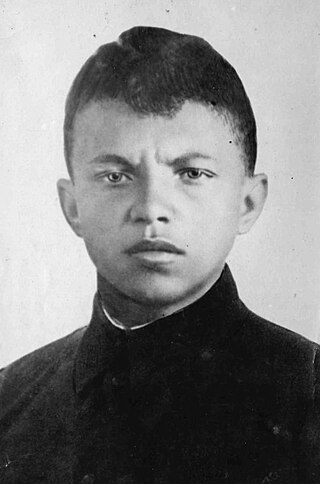 374
Alexander Matveyevich Matrosov was a Soviet infantry soldier during the Second World War, posthumously awarded the title of the Hero of the Soviet Union reportedly for blocking a German machine-gun...
374
Alexander Matveyevich Matrosov was a Soviet infantry soldier during the Second World War, posthumously awarded the title of the Hero of the Soviet Union reportedly for blocking a German machine-gun...
Alexander Suvorov
 358
Count Alexander Vasilyevich Suvorov-Rymniksky, Prince of Italy, was a Russian general and military theorist in the service of the Russian Empire.
358
Count Alexander Vasilyevich Suvorov-Rymniksky, Prince of Italy, was a Russian general and military theorist in the service of the Russian Empire.
Nadezhda Krupskaya
 344
Nadezhda Konstantinovna Krupskaya was a Russian revolutionary and the wife of Vladimir Lenin.
344
Nadezhda Konstantinovna Krupskaya was a Russian revolutionary and the wife of Vladimir Lenin.
Mikhail Lomonosov
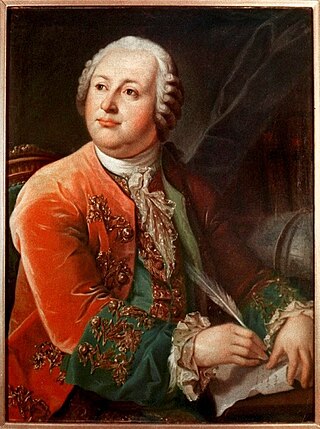 334
Mikhail Vasilyevich Lomonosov was a Russian polymath, scientist and writer, who made important contributions to literature, education, and science. Among his discoveries were the atmosphere of Venus...
334
Mikhail Vasilyevich Lomonosov was a Russian polymath, scientist and writer, who made important contributions to literature, education, and science. Among his discoveries were the atmosphere of Venus...
Friedrich Engels
 312
Friedrich Engels was a German philosopher, political theorist, historian, journalist, and revolutionary socialist. He was also a businessman and Karl Marx's closest friend and collaborator.
312
Friedrich Engels was a German philosopher, political theorist, historian, journalist, and revolutionary socialist. He was also a businessman and Karl Marx's closest friend and collaborator.
Vladimir Komarov
 305
Vladimir Mikhaylovich Komarov was a Soviet test pilot, aerospace engineer, and cosmonaut. In October 1964, he commanded Voskhod 1, the first spaceflight to carry more than one crew member. He became...
305
Vladimir Mikhaylovich Komarov was a Soviet test pilot, aerospace engineer, and cosmonaut. In October 1964, he commanded Voskhod 1, the first spaceflight to carry more than one crew member. He became...
Taras Shevchenko
 285
Taras Hryhorovych Shevchenko was a Ukrainian poet, writer, artist, public and political figure, folklorist and ethnographer. He was a fellow of the Imperial Academy of Arts and a member of the...
285
Taras Hryhorovych Shevchenko was a Ukrainian poet, writer, artist, public and political figure, folklorist and ethnographer. He was a fellow of the Imperial Academy of Arts and a member of the...
Moisei Uritsky
 267
Moisei Solomonovich Uritsky was a Bolshevik revolutionary leader in Russia. After the October Revolution, he was the chief of the Cheka secret police of the Petrograd Soviet. Uritsky was assassinated...
267
Moisei Solomonovich Uritsky was a Bolshevik revolutionary leader in Russia. After the October Revolution, he was the chief of the Cheka secret police of the Petrograd Soviet. Uritsky was assassinated...
V. Volodarsky
 254
V. Volodarsky was a Marxist revolutionary and Soviet politician. He was assassinated in 1918.
254
V. Volodarsky was a Marxist revolutionary and Soviet politician. He was assassinated in 1918.
Nikolay Chernyshevsky
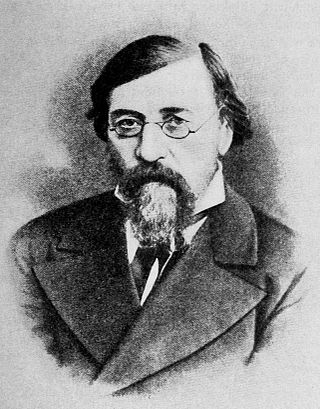 238
Nikolay Gavrilovich Chernyshevsky was a Russian literary and social critic, journalist, novelist, democrat, and socialist philosopher, often identified as a utopian socialist and leading theoretician...
238
Nikolay Gavrilovich Chernyshevsky was a Russian literary and social critic, journalist, novelist, democrat, and socialist philosopher, often identified as a utopian socialist and leading theoretician...
Anatoly Lunacharsky
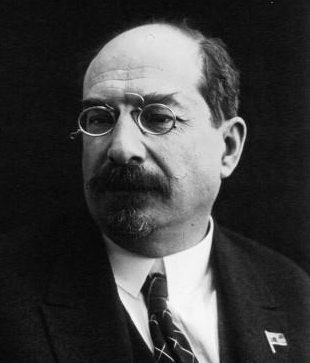 233
Anatoly Vasilyevich Lunacharsky was a Russian Marxist revolutionary and the first Bolshevik Soviet People's Commissar (Narkompros) responsible for the Ministry of Education as well as an active...
233
Anatoly Vasilyevich Lunacharsky was a Russian Marxist revolutionary and the first Bolshevik Soviet People's Commissar (Narkompros) responsible for the Ministry of Education as well as an active...
Sergo Ordzhonikidze
 229
Sergo Konstantinovich Ordzhonikidze, born Grigol Konstantines dze Orjonikidze was a Georgian Bolshevik and Soviet politician.
229
Sergo Konstantinovich Ordzhonikidze, born Grigol Konstantines dze Orjonikidze was a Georgian Bolshevik and Soviet politician.
Ivan Turgenev
 221
Ivan Sergeyevich Turgenev was a Russian novelist, short story writer, poet, playwright, translator and popularizer of Russian literature in the West.
221
Ivan Sergeyevich Turgenev was a Russian novelist, short story writer, poet, playwright, translator and popularizer of Russian literature in the West.
Alexander Herzen
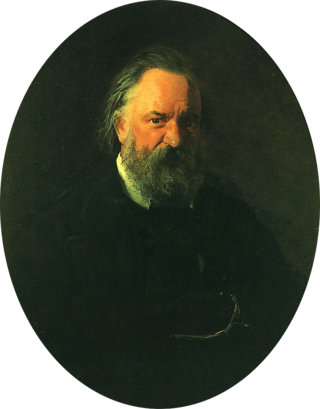 216
Alexander Ivanovich Herzen was a Russian writer and thinker known as the precursor of Russian socialism and one of the main precursors of agrarian populism. With his writings, many composed while...
216
Alexander Ivanovich Herzen was a Russian writer and thinker known as the precursor of Russian socialism and one of the main precursors of agrarian populism. With his writings, many composed while...
Mikhail Kutuzov
 216
Prince Mikhail Illarionovich Golenishchev-Kutuzov-Smolensky was a Field Marshal of the Russian Empire. He served as a military officer and a diplomat under the reign of three Romanov monarchs:...
216
Prince Mikhail Illarionovich Golenishchev-Kutuzov-Smolensky was a Field Marshal of the Russian Empire. He served as a military officer and a diplomat under the reign of three Romanov monarchs:...
Stenka Razin
 209
Stepan Timofeyevich Razin, known as Stenka Razin, was a Don Cossack leader who led a major uprising against the nobility and tsarist bureaucracy in southern Russia in 1670–1671.
209
Stepan Timofeyevich Razin, known as Stenka Razin, was a Don Cossack leader who led a major uprising against the nobility and tsarist bureaucracy in southern Russia in 1670–1671.
Oleg Koshevoy
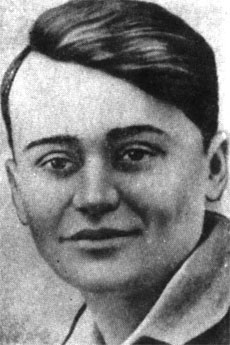 200
Oleg Vasilyevich Koshevoy was a Soviet partisan and one of the founders of the clandestine organization Young Guard, which fought the Nazi forces in Krasnodon during World War II between 1941 and...
200
Oleg Vasilyevich Koshevoy was a Soviet partisan and one of the founders of the clandestine organization Young Guard, which fought the Nazi forces in Krasnodon during World War II between 1941 and...
Pyotr Ilyich Tchaikovsky
 199
Pyotr Ilyich Tchaikovsky was a Russian composer of the Romantic period. He was the first Russian composer whose music would make a lasting impression internationally. Tchaikovsky wrote some of the...
199
Pyotr Ilyich Tchaikovsky was a Russian composer of the Romantic period. He was the first Russian composer whose music would make a lasting impression internationally. Tchaikovsky wrote some of the...
Rosa Luxemburg
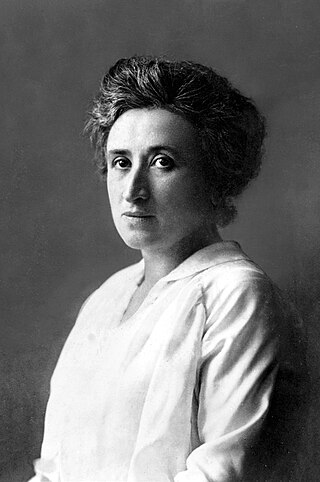 197
Rosa Luxemburg was a Polish and naturalised-German revolutionary socialist, orthodox Marxist, and anti-War activist during the First World War. She became a key figure of the revolutionary socialist...
197
Rosa Luxemburg was a Polish and naturalised-German revolutionary socialist, orthodox Marxist, and anti-War activist during the First World War. She became a key figure of the revolutionary socialist...
Yemelyan Pugachev
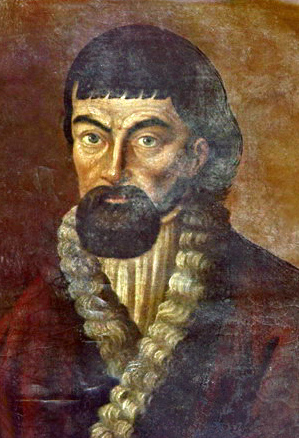 197
Yemelyan Ivanovich Pugachev was an ataman of the Yaik Cossacks and the leader of the Pugachev's Rebellion, a major popular uprising in the Russian Empire during the reign of Catherine the Great.
197
Yemelyan Ivanovich Pugachev was an ataman of the Yaik Cossacks and the leader of the Pugachev's Rebellion, a major popular uprising in the Russian Empire during the reign of Catherine the Great.
Mykola Shchors
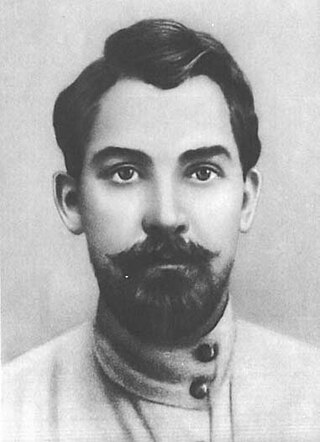 197
Mykola Oleksandrovych Shchors was a member of the Russian Communist Party and a participant in the Russian Civil War, serving as Red Army commander. In 1918–1919 he fought against the newly...
197
Mykola Oleksandrovych Shchors was a member of the Russian Communist Party and a participant in the Russian Civil War, serving as Red Army commander. In 1918–1919 he fought against the newly...
Georgy Zhukov
 192
Georgy Konstantinovich Zhukov was a Marshal of the Soviet Union. He also served as Chief of the General Staff, Minister of Defence, and was a member of the Presidium of the Communist Party. During...
192
Georgy Konstantinovich Zhukov was a Marshal of the Soviet Union. He also served as Chief of the General Staff, Minister of Defence, and was a member of the Presidium of the Communist Party. During...
Sergei Yesenin
 191
Sergei Alexandrovich Yesenin, sometimes spelled as Esenin, was a Russian lyric poet. He is one of the most popular and well-known Russian poets of the 20th century. One of his narratives was "lyrical...
191
Sergei Alexandrovich Yesenin, sometimes spelled as Esenin, was a Russian lyric poet. He is one of the most popular and well-known Russian poets of the 20th century. One of his narratives was "lyrical...
Sergey Lazo
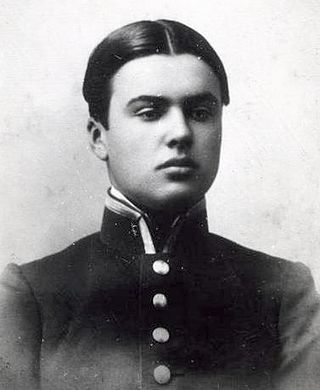 189
Sergey Georgiyevich Lazo was a Russian nobleman, officer of the Imperial Russian Army, and Bolshevik leader in the October 1917 Revolution in the Russian Far East.
189
Sergey Georgiyevich Lazo was a Russian nobleman, officer of the Imperial Russian Army, and Bolshevik leader in the October 1917 Revolution in the Russian Far East.
Vissarion Belinsky
 188
Vissarion Grigoryevich Belinsky was a Russian literary critic of Westernizing tendency. Belinsky played one of the key roles in the career of poet and publisher Nikolay Nekrasov and his popular...
188
Vissarion Grigoryevich Belinsky was a Russian literary critic of Westernizing tendency. Belinsky played one of the key roles in the career of poet and publisher Nikolay Nekrasov and his popular...
Kliment Voroshilov
 187
Kliment Yefremovich Voroshilov, popularly known as Klim Voroshilov, was a prominent Soviet military officer and politician during the Stalin-era. He was one of the original five Marshals of the...
187
Kliment Yefremovich Voroshilov, popularly known as Klim Voroshilov, was a prominent Soviet military officer and politician during the Stalin-era. He was one of the original five Marshals of the...
Zoya Kosmodemyanskaya
 176
Zoya Anatolyevna Kosmodemyanskaya was a Soviet partisan. She was executed after acts of sabotage against the invading armies of Nazi Germany; after stories emerged of her defiance towards her...
176
Zoya Anatolyevna Kosmodemyanskaya was a Soviet partisan. She was executed after acts of sabotage against the invading armies of Nazi Germany; after stories emerged of her defiance towards her...
Aleksey Krylov
 168
Aleksey Nikolaevich Krylov was a Russian naval engineer, applied mathematician and memoirist.
168
Aleksey Nikolaevich Krylov was a Russian naval engineer, applied mathematician and memoirist.
Karl Liebknecht
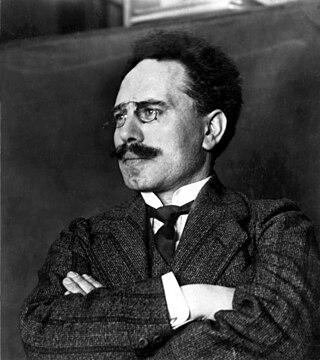 166
Karl Paul August Friedrich Liebknecht was a German socialist and anti-militarist. A member of the Social Democratic Party of Germany (SPD) beginning in 1900, he was one of its deputies in the...
166
Karl Paul August Friedrich Liebknecht was a German socialist and anti-militarist. A member of the Social Democratic Party of Germany (SPD) beginning in 1900, he was one of its deputies in the...
Polina Osipenko
 160
Polina Denisovna Osipenko was a Soviet military pilot who, with Valentina Grizodubova and Marina Raskova on 24–25 September 1938, performed a nonstop flight between Moscow and the Sea of Okhotsk,...
160
Polina Denisovna Osipenko was a Soviet military pilot who, with Valentina Grizodubova and Marina Raskova on 24–25 September 1938, performed a nonstop flight between Moscow and the Sea of Okhotsk,...
Pavlik Morozov
 154
Pavel Trofimovich Morozov, better known by the diminutive Pavlik, was a Soviet youth praised by the Soviet press as a martyr. Evidence has emerged since the dissolution of the Soviet Union of the...
154
Pavel Trofimovich Morozov, better known by the diminutive Pavlik, was a Soviet youth praised by the Soviet press as a martyr. Evidence has emerged since the dissolution of the Soviet Union of the...
Valentina Tereshkova
 153
Valentina Vladimirovna Tereshkova is a Russian engineer, member of the State Duma, and former Soviet cosmonaut. She was the first woman in space, having flown a solo mission on Vostok 6 on 16 June...
153
Valentina Vladimirovna Tereshkova is a Russian engineer, member of the State Duma, and former Soviet cosmonaut. She was the first woman in space, having flown a solo mission on Vostok 6 on 16 June...
Arkady Gaidar
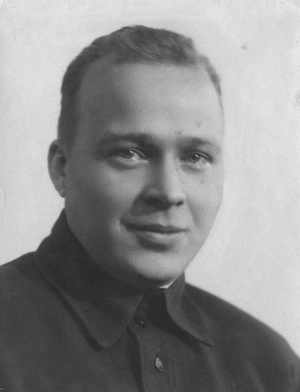 149
Arkady Petrovich Gaidar was a Russian Soviet writer, whose stories were very popular among Soviet children, and a Red Army commander.
149
Arkady Petrovich Gaidar was a Russian Soviet writer, whose stories were very popular among Soviet children, and a Red Army commander.
Vasily Zhukovsky
 138
Vasily Andreyevich Zhukovsky was the foremost Russian poet of the 1810s and a leading figure in Russian literature in the first half of the 19th century. He held a high position at the Romanov court...
138
Vasily Andreyevich Zhukovsky was the foremost Russian poet of the 1810s and a leading figure in Russian literature in the first half of the 19th century. He held a high position at the Romanov court...
Pavel Nakhimov
 136
Pavel Stepanovich Nakhimov was a Russian Admiral in the Imperial Russian Navy known for his victory in the Battle of Sinop and his leadership in the Siege of Sevastopol (1854–1855) during the Crimean...
136
Pavel Stepanovich Nakhimov was a Russian Admiral in the Imperial Russian Navy known for his victory in the Battle of Sinop and his leadership in the Siege of Sevastopol (1854–1855) during the Crimean...
Ivan Pavlov
 135
Ivan Petrovich Pavlov was a Russian and Soviet experimental neurologist and physiologist known for his discovery of classical conditioning through his experiments with dogs.
135
Ivan Petrovich Pavlov was a Russian and Soviet experimental neurologist and physiologist known for his discovery of classical conditioning through his experiments with dogs.
Sergei Korolev
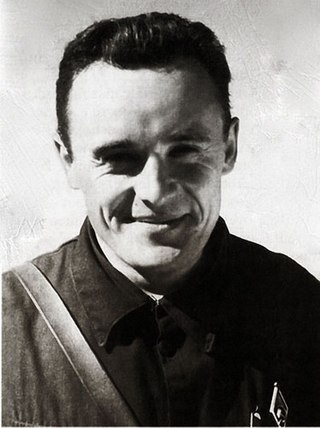 135
Sergei Pavlovich Korolev was the lead Soviet rocket engineer and spacecraft designer during the Space Race between the United States and the Soviet Union in the 1950s and 1960s. He invented the R-7...
135
Sergei Pavlovich Korolev was the lead Soviet rocket engineer and spacecraft designer during the Space Race between the United States and the Soviet Union in the 1950s and 1960s. He invented the R-7...
Aleksandr Popov (physicist)
 129
Alexander Stepanovich Popov was a Russian physicist who was one of the first people to invent a radio receiving device.
129
Alexander Stepanovich Popov was a Russian physicist who was one of the first people to invent a radio receiving device.
Dmitri Mendeleev
 117
Dmitri Ivanovich Mendeleev was a Russian chemist and inventor. He is best known for formulating the Periodic Law and creating a version of the periodic table of elements. He used the Periodic Law not...
117
Dmitri Ivanovich Mendeleev was a Russian chemist and inventor. He is best known for formulating the Periodic Law and creating a version of the periodic table of elements. He used the Periodic Law not...
Demyan Bedny
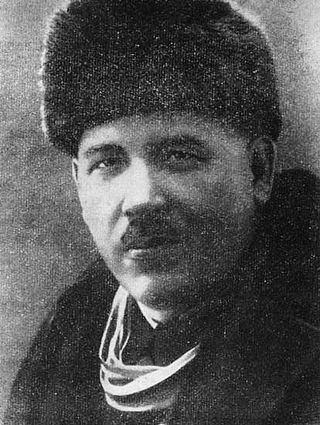 106
Yefim Alekseevich Pridvorov, better known by the pen name Demyan Bedny, was a Soviet Russian poet, Bolshevik propagandist and satirist.
106
Yefim Alekseevich Pridvorov, better known by the pen name Demyan Bedny, was a Soviet Russian poet, Bolshevik propagandist and satirist.
Bohdan Khmelnytsky
 103
Bohdan Zynoviy Mykhailovych Khmelnytsky was a Ruthenian nobleman and military commander of Ukrainian Cossacks as Hetman of the Zaporozhian Host, which was then under the suzerainty of the...
103
Bohdan Zynoviy Mykhailovych Khmelnytsky was a Ruthenian nobleman and military commander of Ukrainian Cossacks as Hetman of the Zaporozhian Host, which was then under the suzerainty of the...
Nikolay Pirogov
 102
Nikolay Ivanovich Pirogov was a Russian scientist, medical doctor, pedagogue, public figure, and corresponding member of the Russian Academy of Sciences (1847), one of the most widely recognized...
102
Nikolay Ivanovich Pirogov was a Russian scientist, medical doctor, pedagogue, public figure, and corresponding member of the Russian Academy of Sciences (1847), one of the most widely recognized...
Fyodor Ushakov
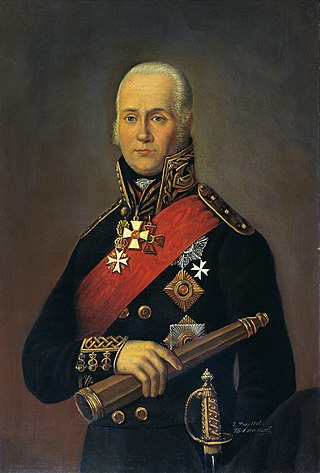 98
Fyodor Fyodorovich Ushakov was a Russian naval commander and admiral. He is won every engagement he participated in as the admiral of the Russian fleet, and is regarded as one of the greatest naval...
98
Fyodor Fyodorovich Ushakov was a Russian naval commander and admiral. He is won every engagement he participated in as the admiral of the Russian fleet, and is regarded as one of the greatest naval...
Yelizaveta Chaikina
 97
Yelizaveta Ivanovna Chaikina often referred to as Liza Chaikina, was the Secretary of the Kalinin Komsomol Penovsky underground committee, a Soviet partisan detachment organizer and posthumous...
97
Yelizaveta Ivanovna Chaikina often referred to as Liza Chaikina, was the Secretary of the Kalinin Komsomol Penovsky underground committee, a Soviet partisan detachment organizer and posthumous...
Stepan Khalturin
 97
Stepan Nikolayevich Khalturin was a Russian revolutionary, member of Narodnaya Volya, and responsible for an attempted assassination of Alexander II of Russia.
97
Stepan Nikolayevich Khalturin was a Russian revolutionary, member of Narodnaya Volya, and responsible for an attempted assassination of Alexander II of Russia.
Georgi Dimitrov
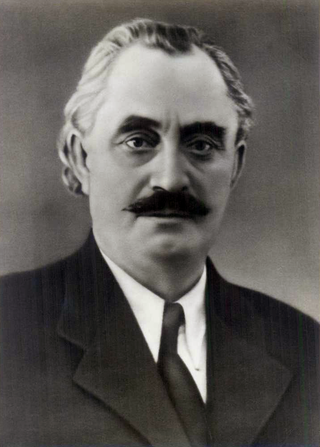 93
Georgi Dimitrov Mihaylov also known as Georgiy Mihaylovich Dimitrov, was a Bulgarian communist politician who served as General Secretary of the Bulgarian Communist Party from 1946 to 1949. From 1935...
93
Georgi Dimitrov Mihaylov also known as Georgiy Mihaylovich Dimitrov, was a Bulgarian communist politician who served as General Secretary of the Bulgarian Communist Party from 1946 to 1949. From 1935...
Imam Shamil
 93
Imam Shamil was the political, military, and spiritual leader of North Caucasian resistance to Imperial Russia in the 1800s, the third Imam of the Caucasian Imamate (1840–1859), and a Sunni Muslim...
93
Imam Shamil was the political, military, and spiritual leader of North Caucasian resistance to Imperial Russia in the 1800s, the third Imam of the Caucasian Imamate (1840–1859), and a Sunni Muslim...
Nikolai Kuznetsov (spy)
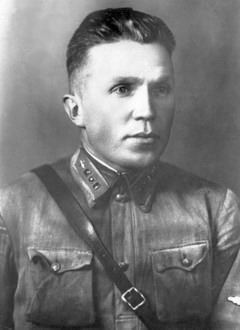 88
Nikolai Ivanovich Kuznetsov was a Soviet intelligence agent and partisan who operated in Nazi-occupied Ukraine during World War II and who personally killed six high-ranking German officials. His...
88
Nikolai Ivanovich Kuznetsov was a Soviet intelligence agent and partisan who operated in Nazi-occupied Ukraine during World War II and who personally killed six high-ranking German officials. His...
Alexander Nevsky
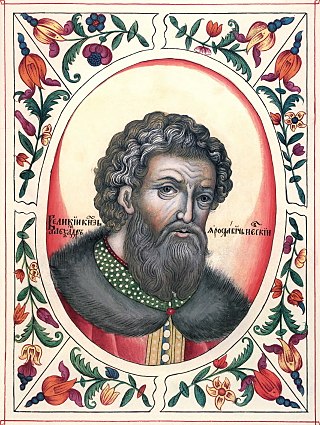 87
Alexander Yaroslavich Nevsky was Prince of Novgorod, Grand Prince of Kiev (1246–1263) and Grand Prince of Vladimir (1252–1263).
87
Alexander Yaroslavich Nevsky was Prince of Novgorod, Grand Prince of Kiev (1246–1263) and Grand Prince of Vladimir (1252–1263).
Musa Cälil
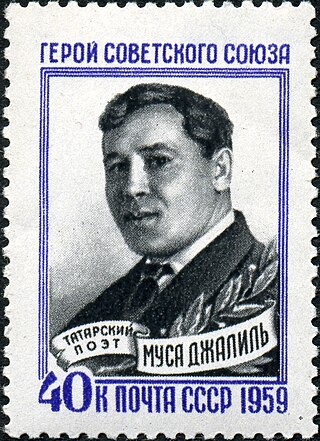 82
Musa Cälil was a Soviet–Tatar poet and resistance fighter. He is the only poet of the Soviet Union awarded simultaneously the Hero of the Soviet Union award for his resistance fighting and the Lenin...
82
Musa Cälil was a Soviet–Tatar poet and resistance fighter. He is the only poet of the Soviet Union awarded simultaneously the Hero of the Soviet Union award for his resistance fighting and the Lenin...
Pyotr Schmidt
 78
Pyotr Petrovich Schmidt was one of the leaders of the Sevastopol Uprising during the Russian Revolution of 1905.
78
Pyotr Petrovich Schmidt was one of the leaders of the Sevastopol Uprising during the Russian Revolution of 1905.
Suleyman Stalsky
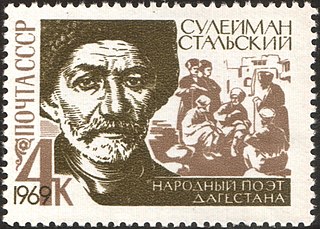 72
Suleiman Stalsky was a North Caucasian poet of Lezgin descent from Dagestan. Russian writer Maxim Gorky described him as "Homer of 20th century".
72
Suleiman Stalsky was a North Caucasian poet of Lezgin descent from Dagestan. Russian writer Maxim Gorky described him as "Homer of 20th century".
Igor Kurchatov
 70
Igor Vasilyevich Kurchatov, was a Soviet physicist who played a central role in organizing and directing the former Soviet program of nuclear weapons.
70
Igor Vasilyevich Kurchatov, was a Soviet physicist who played a central role in organizing and directing the former Soviet program of nuclear weapons.
Clara Zetkin
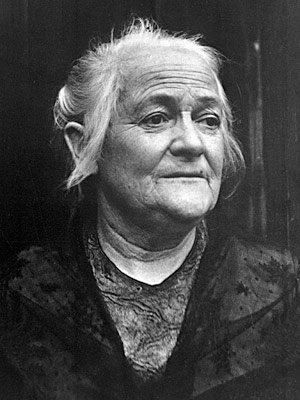 68
Clara Zetkin was a German Marxist theorist, communist activist, and advocate for women's rights.
68
Clara Zetkin was a German Marxist theorist, communist activist, and advocate for women's rights.
Vladimir Vysotsky
 66
Vladimir Semyonovich Vysotsky was a Soviet singer-songwriter, poet, and actor who had an immense and enduring effect on Soviet culture. He became widely known for his unique singing style and for his...
66
Vladimir Semyonovich Vysotsky was a Soviet singer-songwriter, poet, and actor who had an immense and enduring effect on Soviet culture. He became widely known for his unique singing style and for his...
Ğabdulla Tuqay
 60
Ğabdulla Möxəmmətğarif ulı Tuqay was a Volga Tatar poet, critic, publisher, and towering figure of Tatar literature. Tuqay is often referred to as the founder of modern Tatar literature and the...
60
Ğabdulla Möxəmmətğarif ulı Tuqay was a Volga Tatar poet, critic, publisher, and towering figure of Tatar literature. Tuqay is often referred to as the founder of modern Tatar literature and the...
Dmitry Karbyshev
 59
Dmitry Mikhaylovich Karbyshev was an officer of the Russian Imperial Army, a Red Army general, professor of the Soviet General Staff Academy, and Hero of the Soviet Union (posthumously).
59
Dmitry Mikhaylovich Karbyshev was an officer of the Russian Imperial Army, a Red Army general, professor of the Soviet General Staff Academy, and Hero of the Soviet Union (posthumously).
Смирнов, Юрий Николаевич (актёр)
 52
Юрий Николаевич Смирнов — советский и российский актёр театра, кино и телевидения.
52
Юрий Николаевич Смирнов — советский и российский актёр театра, кино и телевидения.
Salawat Yulayev
 52
Salawat Yulayev was a Bashkir national hero who helped lead the Pugachev's Rebellion. He was also a poet and singer.
52
Salawat Yulayev was a Bashkir national hero who helped lead the Pugachev's Rebellion. He was also a poet and singer.
Гаджиев, Магомед Магомедович (лингвист)
 51
Магомед Магомедович Гаджиев — филолог-кавказовед, доктор филологических наук, один из первых профессиональных филологов Дагестана стоявший у истоков ИЯЛИ ДНЦ РАН, соавтор первого большого...
51
Магомед Магомедович Гаджиев — филолог-кавказовед, доктор филологических наук, один из первых профессиональных филологов Дагестана стоявший у истоков ИЯЛИ ДНЦ РАН, соавтор первого большого...
Alexei Leonov
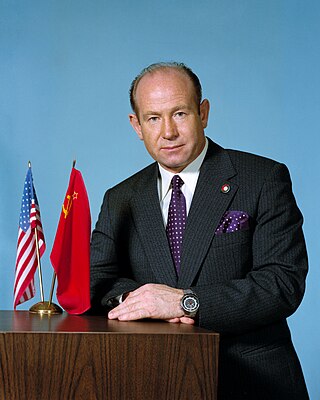 50
Alexei Arkhipovich Leonov was a Soviet and Russian cosmonaut, Air Force major general, writer, and artist. On 18 March 1965, he became the first person to conduct a spacewalk, exiting the capsule...
50
Alexei Arkhipovich Leonov was a Soviet and Russian cosmonaut, Air Force major general, writer, and artist. On 18 March 1965, he became the first person to conduct a spacewalk, exiting the capsule...
Ivan Gubkin
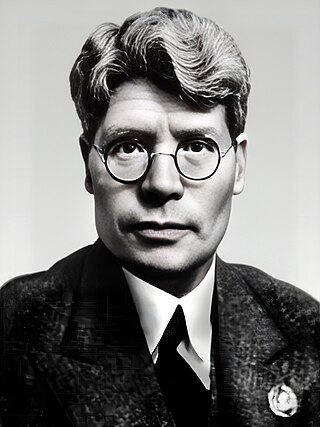 48
Ivan Mikhailovich Gubkin was a Soviet and Russian geologist and president of the 1937 International Geological Congress in Moscow. He was a petroleum geologist particularly interested the region...
48
Ivan Mikhailovich Gubkin was a Soviet and Russian geologist and president of the 1937 International Geological Congress in Moscow. He was a petroleum geologist particularly interested the region...
Ulyana Gromova
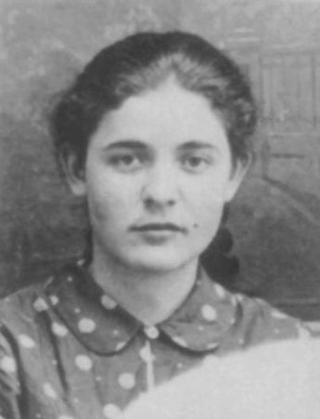 47
Ulyana Matveyevna Gromova was a Soviet partisan who was a member of the Young Guard resistance movement in Krasnodon, in modern-day eastern Ukraine. She was executed by the Nazis in 1943, along with...
47
Ulyana Matveyevna Gromova was a Soviet partisan who was a member of the Young Guard resistance movement in Krasnodon, in modern-day eastern Ukraine. She was executed by the Nazis in 1943, along with...
Marina Raskova
 46
Marina Mikhaylovna Raskova was the first woman in the Soviet Union to achieve the diploma of professional air navigator. Raskova went from a young woman with aspirations of becoming an opera singer...
46
Marina Mikhaylovna Raskova was the first woman in the Soviet Union to achieve the diploma of professional air navigator. Raskova went from a young woman with aspirations of becoming an opera singer...
Mikhail Saltykov-Shchedrin
 42
Mikhail Yevgrafovich Saltykov-Shchedrin, born Mikhail Yevgrafovich Saltykov and known during his lifetime by the pen name Nikolai Shchedrin, was a major Russian writer and satirist of the 19th...
42
Mikhail Yevgrafovich Saltykov-Shchedrin, born Mikhail Yevgrafovich Saltykov and known during his lifetime by the pen name Nikolai Shchedrin, was a major Russian writer and satirist of the 19th...
Rasul Gamzatov
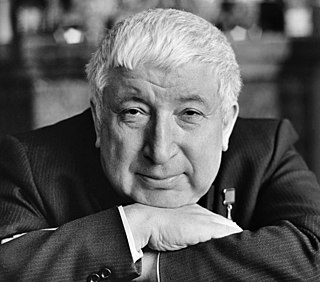 41
Rasul Gamzatovich Gamzatov was a popular Russian poet who wrote in Avar. Among his poems was Zhuravli, which became a well-known Soviet song.
41
Rasul Gamzatovich Gamzatov was a popular Russian poet who wrote in Avar. Among his poems was Zhuravli, which became a well-known Soviet song.
Fyodor Tolbukhin
 41
Fyodor Ivanovich Tolbukhin was a Soviet military commander and Marshal of the Soviet Union. He is regarded as one of the finest Soviet generals of World War II.
41
Fyodor Ivanovich Tolbukhin was a Soviet military commander and Marshal of the Soviet Union. He is regarded as one of the finest Soviet generals of World War II.
Dmitry Mamin-Sibiryak
 40
Dmitry Narkisovich Mamin-Sibiryak was a Russian writer. He is most well known for his novels and short stories about life in the Ural Mountains.
40
Dmitry Narkisovich Mamin-Sibiryak was a Russian writer. He is most well known for his novels and short stories about life in the Ural Mountains.
Буйнакский, Уллубий Даниялович
 40
Уллубий Даниялович Буйнакский — революционный деятель Дагестана начала XX века.
40
Уллубий Даниялович Буйнакский — революционный деятель Дагестана начала XX века.
Ivan Petrov (army general)
 39
Ivan Yefimovich Petrov was a Soviet Army General from 1941.
39
Ivan Yefimovich Petrov was a Soviet Army General from 1941.
Тюленин, Сергей Гаврилович
 39
Серге́й Гаври́лович Тюле́нин (1925—1943) — один из основателей штаба организации «Молодая гвардия», Герой Советского Союза.
39
Серге́й Гаври́лович Тюле́нин (1925—1943) — один из основателей штаба организации «Молодая гвардия», Герой Советского Союза.
Dmitry Ilyich Ulyanov
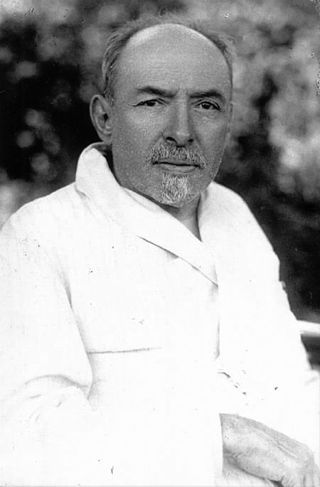 38
Dmitri Ilyich Ulyanov was a Russian and Soviet physician and revolutionary, the younger brother of Aleksandr Ulyanov and Vladimir Lenin.
38
Dmitri Ilyich Ulyanov was a Russian and Soviet physician and revolutionary, the younger brother of Aleksandr Ulyanov and Vladimir Lenin.
Sophia Perovskaya
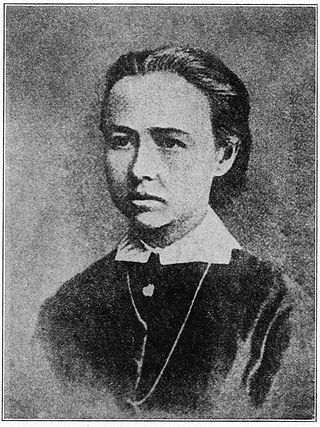 37
Sophia Lvovna Perovskaya was a Russian revolutionary and a member of the revolutionary organization Narodnaya Volya. She helped orchestrate the assassination of Alexander II of Russia, for which she...
37
Sophia Lvovna Perovskaya was a Russian revolutionary and a member of the revolutionary organization Narodnaya Volya. She helped orchestrate the assassination of Alexander II of Russia, for which she...
Richard Sorge
 37
Richard Sorge was a German journalist and Soviet military intelligence officer who was active before and during World War II and worked undercover as a German journalist in both Nazi Germany and the...
37
Richard Sorge was a German journalist and Soviet military intelligence officer who was active before and during World War II and worked undercover as a German journalist in both Nazi Germany and the...
Vasily Dokuchaev
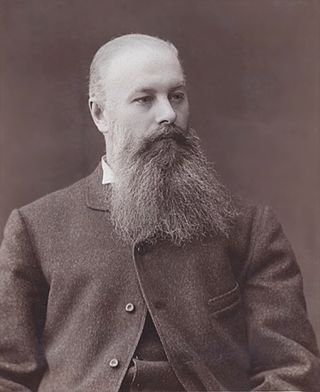 37
Vasily Vasilyevich Dokuchaev was a Russian geologist and geographer who is credited with laying the foundations of soil science. The Ukrainian city of Dokuchaievsk is named after him.
37
Vasily Vasilyevich Dokuchaev was a Russian geologist and geographer who is credited with laying the foundations of soil science. The Ukrainian city of Dokuchaievsk is named after him.
Konstantin Ivanov (conductor)
 36
Konstantin Konstantinovich Ivanov was a Soviet conductor and composer.
36
Konstantin Konstantinovich Ivanov was a Soviet conductor and composer.
Sheikh Muhammad Kurawi
 35
Sheikh Muhammad (1771–1838) was a Lezgin sheikh, founder of Muridism in the Caucasus and teacher of all imams of Dagestan and Chechnya. Legendary Imam Shamil was his the most famous student.
35
Sheikh Muhammad (1771–1838) was a Lezgin sheikh, founder of Muridism in the Caucasus and teacher of all imams of Dagestan and Chechnya. Legendary Imam Shamil was his the most famous student.
Konstantin Rokossovsky
 33
Konstantin Konstantinovich Rokossovsky was a Soviet and Polish officer who became a Marshal of the Soviet Union, a Marshal of Poland, and served as Poland's Defence Minister from 1949 until his...
33
Konstantin Konstantinovich Rokossovsky was a Soviet and Polish officer who became a Marshal of the Soviet Union, a Marshal of Poland, and served as Poland's Defence Minister from 1949 until his...
Sacco and Vanzetti
 32
Nicola Sacco and Bartolomeo Vanzetti were Italian immigrants and anarchists who were controversially convicted of murdering Alessandro Berardelli and Frederick Parmenter, a guard and a paymaster,...
32
Nicola Sacco and Bartolomeo Vanzetti were Italian immigrants and anarchists who were controversially convicted of murdering Alessandro Berardelli and Frederick Parmenter, a guard and a paymaster,...
Sergey Biryuzov
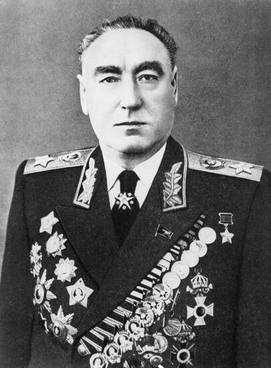 31
Sergey Semyonovich Biryuzov was a Marshal of the Soviet Union and Chief of the General Staff.
31
Sergey Semyonovich Biryuzov was a Marshal of the Soviet Union and Chief of the General Staff.
Lyubov Shevtsova
 29
Lyubov Shevtsova was a Soviet partisan and a member of the Young Guard, an underground anti-Nazi organization in Krasnodon during World War II.
29
Lyubov Shevtsova was a Soviet partisan and a member of the Young Guard, an underground anti-Nazi organization in Krasnodon during World War II.
Gamzat Tsadasa
 28
Gamzat Tsadasa was a Avar poet from Dagestan. He is the father of famous Russian writer Rasul Gamzatov.
28
Gamzat Tsadasa was a Avar poet from Dagestan. He is the father of famous Russian writer Rasul Gamzatov.
Andrei Sakharov
 28
Andrei Dmitrievich Sakharov was a Soviet physicist and a Nobel Peace Prize laureate, which he was awarded in 1975 for emphasizing human rights around the world.
28
Andrei Dmitrievich Sakharov was a Soviet physicist and a Nobel Peace Prize laureate, which he was awarded in 1975 for emphasizing human rights around the world.
Mikhail Lazarev
 27
Admiral Mikhail Petrovich Lazarev was a Russian fleet commander and an explorer.
27
Admiral Mikhail Petrovich Lazarev was a Russian fleet commander and an explorer.
Konstantin Zaslonov
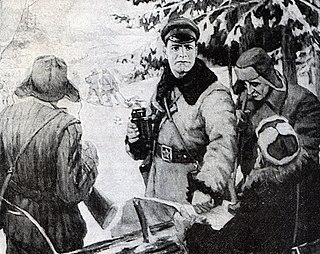 27
Konstantin Sergeyevich Zaslonov, was a notable Belarusian partisan commander during World War II who was awarded the title of Hero of the Soviet Union for his command of partisan forces around Orsha.
27
Konstantin Sergeyevich Zaslonov, was a notable Belarusian partisan commander during World War II who was awarded the title of Hero of the Soviet Union for his command of partisan forces around Orsha.
Marina Tsvetaeva
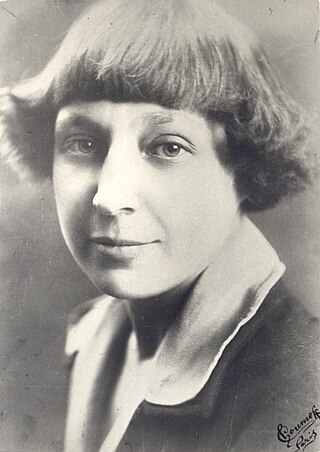 26
Marina Ivanovna Tsvetaeva was a Russian poet. Her work is some of the most well known in twentieth century Russian literature. She lived through and wrote of the Russian Revolution of 1917 and the...
26
Marina Ivanovna Tsvetaeva was a Russian poet. Her work is some of the most well known in twentieth century Russian literature. She lived through and wrote of the Russian Revolution of 1917 and the...
Majit Gafuri
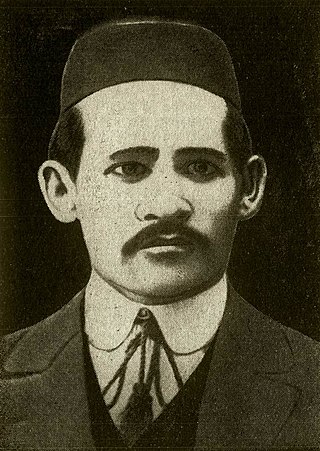 24
Majit Gafuri was a Bashkir and Tatar poet, writer, and playwright. He was one of the leaders of the democratic trend in Tatar literature and one of the founders of national children's literature.
24
Majit Gafuri was a Bashkir and Tatar poet, writer, and playwright. He was one of the leaders of the democratic trend in Tatar literature and one of the founders of national children's literature.
Alexander Novikov
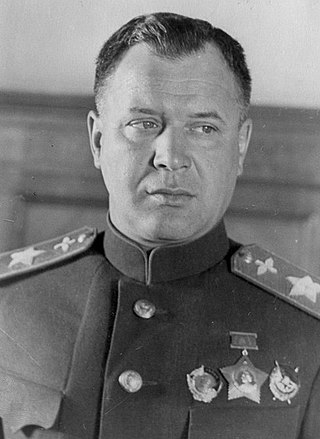 23
Alexander Alexandrovich Novikov was the chief marshal of aviation for the Soviet Air Forces during the Soviet Union's involvement in the Second World War. Lauded as "the man who has piloted the Red...
23
Alexander Alexandrovich Novikov was the chief marshal of aviation for the Soviet Air Forces during the Soviet Union's involvement in the Second World War. Lauded as "the man who has piloted the Red...
Ирчи Казак
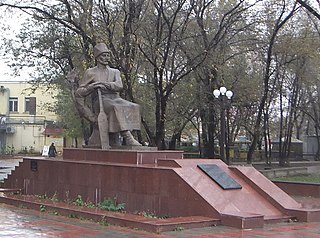 22
Ирчи́ Каза́к — классик дагестанской литературы, кумыкский поэт, зачинатель кумыкской литературы. Написанные им стихи с призывом к мухаджирству получили широкое распространение на Кавказе.
22
Ирчи́ Каза́к — классик дагестанской литературы, кумыкский поэт, зачинатель кумыкской литературы. Написанные им стихи с призывом к мухаджирству получили широкое распространение на Кавказе.
Sofya Kovalevskaya
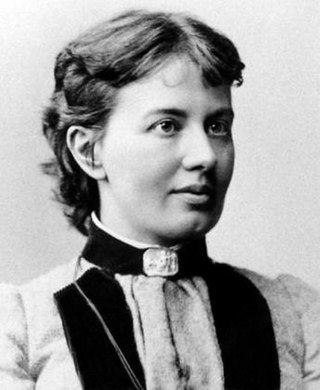 22
Sofya Vasilyevna Kovalevskaya, born Korvin-Krukovskaya, was a Russian mathematician who made noteworthy contributions to analysis, partial differential equations and mechanics. She was a pioneer for...
22
Sofya Vasilyevna Kovalevskaya, born Korvin-Krukovskaya, was a Russian mathematician who made noteworthy contributions to analysis, partial differential equations and mechanics. She was a pioneer for...
Vsevolod Vishnevsky
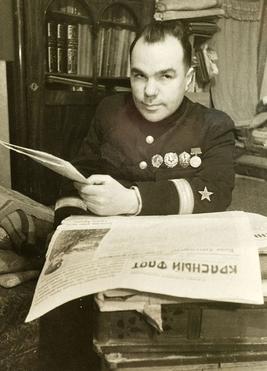 22
Vsevolod Vitalyevich Vishnevsky was a Soviet and Russian writer, screenwriter, playwright and journalist.
22
Vsevolod Vitalyevich Vishnevsky was a Soviet and Russian writer, screenwriter, playwright and journalist.
Етим Эмин
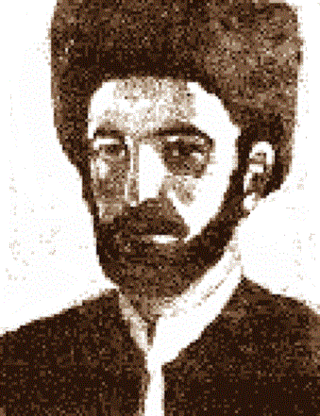 22
Етим Эмин, — лезгинский поэт. Основоположник лезгинской письменной литературы. Стихи писал на лезгинском, азербайджанском и арабском языках.
22
Етим Эмин, — лезгинский поэт. Основоположник лезгинской письменной литературы. Стихи писал на лезгинском, азербайджанском и арабском языках.
Dmitry Donskoy
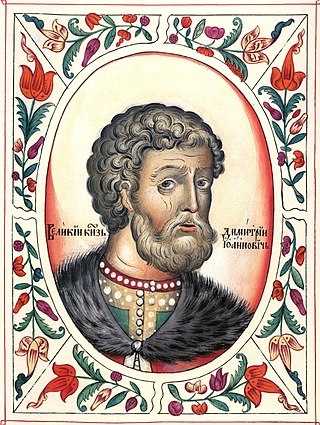 21
Dmitry Ivanovich Donskoy was Prince of Moscow from 1359 and Grand Prince of Vladimir from 1363 until his death. He was the heir of Ivan II.
21
Dmitry Ivanovich Donskoy was Prince of Moscow from 1359 and Grand Prince of Vladimir from 1363 until his death. He was the heir of Ivan II.
Павел Корчагин (персонаж)
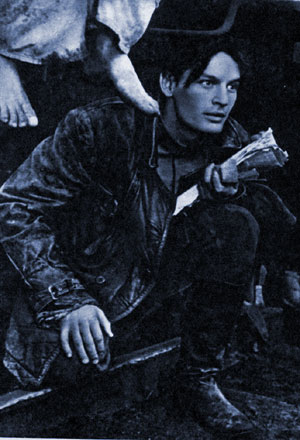 21
Па́вел Андреевич Корча́гин — главный герой романа Николая Островского «Как закалялась сталь» (1932) и снятых по этому произведению фильмов. Сразу после публикации романа Павел Корчагин, чья юность в...
21
Па́вел Андреевич Корча́гин — главный герой романа Николая Островского «Как закалялась сталь» (1932) и снятых по этому произведению фильмов. Сразу после публикации романа Павел Корчагин, чья юность в...
Nikolai Ostrovsky
 20
Nikolai Alekseyevich Ostrovsky was a Soviet socialist realist writer. He is best known for his novel How the Steel Was Tempered.
20
Nikolai Alekseyevich Ostrovsky was a Soviet socialist realist writer. He is best known for his novel How the Steel Was Tempered.
Leonid Govorov
 20
Leonid Aleksandrovich Govorov was a Soviet military commander. Trained as an artillery officer, he joined the Red Army in 1920. He graduated from several Soviet military academies, including the...
20
Leonid Aleksandrovich Govorov was a Soviet military commander. Trained as an artillery officer, he joined the Red Army in 1920. He graduated from several Soviet military academies, including the...
Aleksandr Vasilevsky
 20
Aleksandr Mikhaylovich Vasilevsky was a Soviet career-officer in the Red Army who attained the rank of Marshal of the Soviet Union in 1943. He served as the Chief of the General Staff of the Soviet...
20
Aleksandr Mikhaylovich Vasilevsky was a Soviet career-officer in the Red Army who attained the rank of Marshal of the Soviet Union in 1943. He served as the Chief of the General Staff of the Soviet...
Denis Davydov
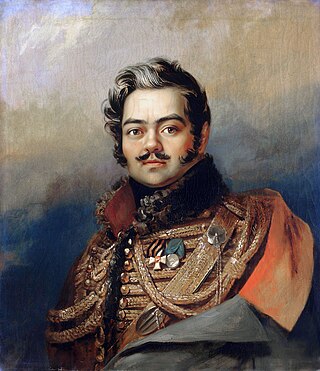 20
Denis Vasilyevich Davydov was a Russian soldier-poet of the Napoleonic Wars who invented the genre of hussar poetry, characterised by hedonism and bravado. He used events from his own life to...
20
Denis Vasilyevich Davydov was a Russian soldier-poet of the Napoleonic Wars who invented the genre of hussar poetry, characterised by hedonism and bravado. He used events from his own life to...
Amet-khan Sultan
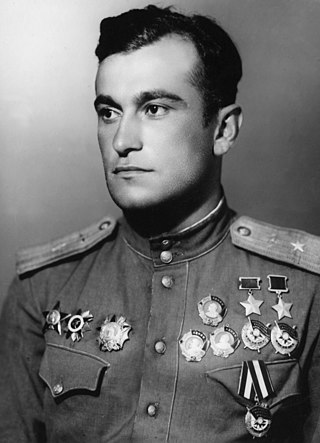 19
Amet-khan Sultan was a highly decorated Crimean Tatar flying ace in the Soviet Air Force with 30 personal and 19 shared kills who was twice awarded the title Hero of the Soviet Union. Despite having...
19
Amet-khan Sultan was a highly decorated Crimean Tatar flying ace in the Soviet Air Force with 30 personal and 19 shared kills who was twice awarded the title Hero of the Soviet Union. Despite having...
Volodia Dubinin
 19
Volodia Dubinin was a Pioneer Hero of the Soviet Union.
19
Volodia Dubinin was a Pioneer Hero of the Soviet Union.
Виноградов, Павлин Фёдорович
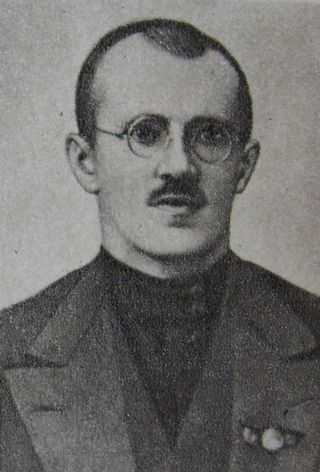 18
Павлин Фёдорович Виногра́дов — российский революционер.
18
Павлин Фёдорович Виногра́дов — российский революционер.
Pavel Belov
 17
Pavel Alexeyevich Belov was a Soviet Army colonel general and a Hero of the Soviet Union. He was nicknamed the "Fox" by the Germans and personally led the longest successful war raid, lasting five...
17
Pavel Alexeyevich Belov was a Soviet Army colonel general and a Hero of the Soviet Union. He was nicknamed the "Fox" by the Germans and personally led the longest successful war raid, lasting five...
Patrice Lumumba
 17
Patrice Émery Lumumba, born Isaïe Tasumbu Tawosa, was a Congolese politician and independence leader who served as the first prime minister of the Democratic Republic of the Congo from June until...
17
Patrice Émery Lumumba, born Isaïe Tasumbu Tawosa, was a Congolese politician and independence leader who served as the first prime minister of the Democratic Republic of the Congo from June until...
Nikolay Raevsky
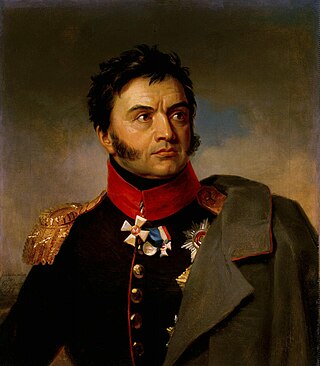 17
Nikolay Nikolayevich Raevsky was a Russian general and statesman who achieved fame for his feats of arms during the Napoleonic Wars. His family left a lasting legacy in Russian society and culture.
17
Nikolay Nikolayevich Raevsky was a Russian general and statesman who achieved fame for his feats of arms during the Napoleonic Wars. His family left a lasting legacy in Russian society and culture.
Fyodor Sergeyev
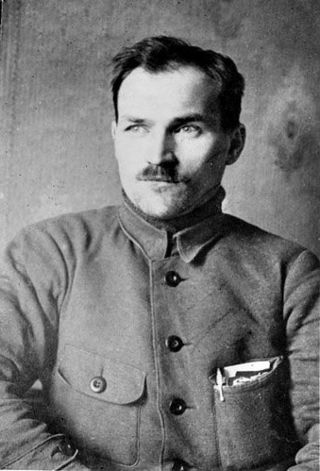 17
Fyodor Andreyevich Sergeyev, better known as Comrade Artyom, was a Russian Bolshevik revolutionary, Soviet politician, agitator, and journalist. He was a close friend of Sergei Kirov and Joseph...
17
Fyodor Andreyevich Sergeyev, better known as Comrade Artyom, was a Russian Bolshevik revolutionary, Soviet politician, agitator, and journalist. He was a close friend of Sergei Kirov and Joseph...
Fyodor Abramov
 17
Fyodor Aleksandrovich Abramov was a Russian novelist and literary critic. His work focused on the difficult lives of the Russian peasant class. He was frequently reprimanded for deviations from...
17
Fyodor Aleksandrovich Abramov was a Russian novelist and literary critic. His work focused on the difficult lives of the Russian peasant class. He was frequently reprimanded for deviations from...
Shota Rustaveli
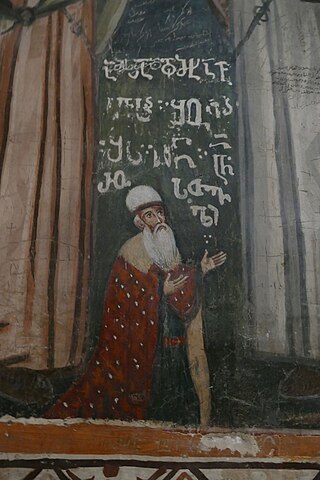 17
Shota Rustaveli, mononymously known simply as Rustaveli, was a medieval Georgian poet. He is considered to be the pre-eminent poet of the Georgian Golden Age and one of the greatest contributors to...
17
Shota Rustaveli, mononymously known simply as Rustaveli, was a medieval Georgian poet. He is considered to be the pre-eminent poet of the Georgian Golden Age and one of the greatest contributors to...
Leonid Golikov
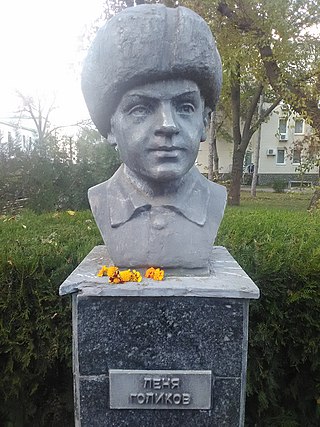 15
Leonid Aleksandrovich Golikov ; was a Soviet partisan during World War II who was posthumously recognized as a pioneer hero and received the Hero of the Soviet Union.
15
Leonid Aleksandrovich Golikov ; was a Soviet partisan during World War II who was posthumously recognized as a pioneer hero and received the Hero of the Soviet Union.
Gleb Uspensky
 15
Gleb Ivanovich Uspensky was a Russian writer and a prominent figure of the Narodnik movement.
15
Gleb Ivanovich Uspensky was a Russian writer and a prominent figure of the Narodnik movement.
Nikolay Rubtsov
 15
Nikolay Mikhaylovich Rubtsov was a Russian poet.
15
Nikolay Mikhaylovich Rubtsov was a Russian poet.
Ivan Franko
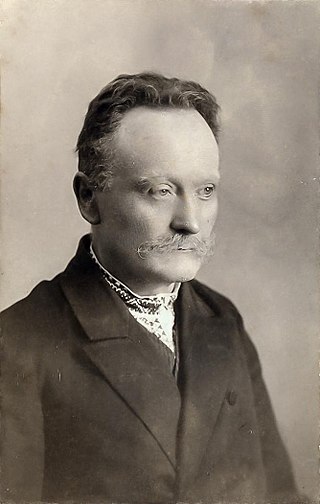 15
Ivan Yakovych Franko was a Ukrainian poet, writer, social and literary critic, journalist, translator, economist, political activist, doctor of philosophy, ethnographer, and the author of the first...
15
Ivan Yakovych Franko was a Ukrainian poet, writer, social and literary critic, journalist, translator, economist, political activist, doctor of philosophy, ethnographer, and the author of the first...
Vladimir Voronin (captain)
 14
Vladimir Ivanovich Voronin was a Soviet Navy captain, born in Sumsky Posad, in the present Republic of Karelia, Russia. In 1932 he commanded the expedition of the Soviet icebreaker A. Sibiryakov...
14
Vladimir Ivanovich Voronin was a Soviet Navy captain, born in Sumsky Posad, in the present Republic of Karelia, Russia. In 1932 he commanded the expedition of the Soviet icebreaker A. Sibiryakov...
Konstantin Simonov
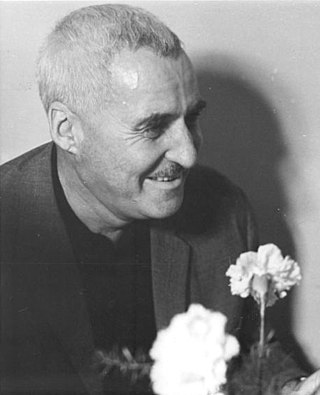 14
Konstantin Mikhailovich Simonov, born Kirill Mikhailovich Simonov, was a Soviet author, war poet, playwright and wartime correspondent, arguably most famous for his 1941 poem "Wait for Me".
14
Konstantin Mikhailovich Simonov, born Kirill Mikhailovich Simonov, was a Soviet author, war poet, playwright and wartime correspondent, arguably most famous for his 1941 poem "Wait for Me".
Alexander Chekalin (partisan)
 14
Alexander (Shura) Pavlovich Chekalin was a Russian teenager, Soviet partisan, and Hero of the Soviet Union.
14
Alexander (Shura) Pavlovich Chekalin was a Russian teenager, Soviet partisan, and Hero of the Soviet Union.
Ivan Susanin
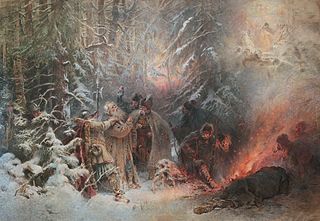 13
Ivan Susanin was a Russian national hero and martyr of the early-17th-century Time of Troubles. According to the popular legend, Polish troops seeking to kill Tsar Mikhail hired Susanin as a guide....
13
Ivan Susanin was a Russian national hero and martyr of the early-17th-century Time of Troubles. According to the popular legend, Polish troops seeking to kill Tsar Mikhail hired Susanin as a guide....
Anna Akhmatova
 13
Anna Andreyevna Gorenko, better known by the pen name Anna Akhmatova, was a Russian poet, one of the most significant of the 20th century. She reappeared as a voice of Russian poetry during World War...
13
Anna Andreyevna Gorenko, better known by the pen name Anna Akhmatova, was a Russian poet, one of the most significant of the 20th century. She reappeared as a voice of Russian poetry during World War...
Vyacheslav Shishkov
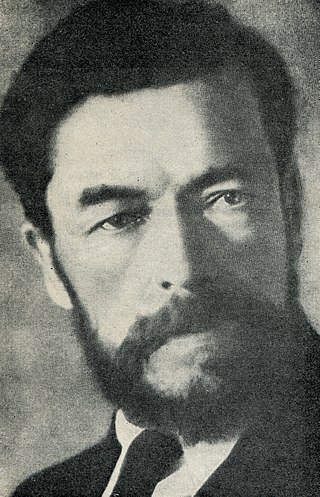 13
Vyacheslav Yakovlevich Shishkov was and Russian and Soviet writer known for his descriptions of Siberia. He was awarded the Stalin State Prize posthumously in 1946.
13
Vyacheslav Yakovlevich Shishkov was and Russian and Soviet writer known for his descriptions of Siberia. He was awarded the Stalin State Prize posthumously in 1946.
Aleksa Dundić
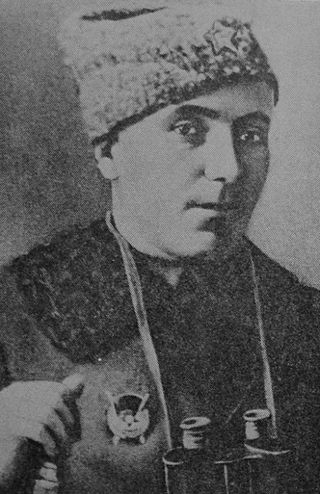 13
Aleksa Dundić or Oleko Dundich was a Croatian participant in Russia's October Revolution. A popular character in Russian literature, Dundić was honoured with the Order of the Red Banner.
13
Aleksa Dundić or Oleko Dundich was a Croatian participant in Russia's October Revolution. A popular character in Russian literature, Dundić was honoured with the Order of the Red Banner.
Kadi Abakarov
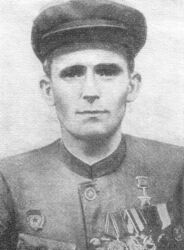 13
Kadi Abakarovich Abakarov was an Avar Red Army sergeant who fought during World War II. Abakarov was awarded the title Hero of the Soviet Union for actions in the Battle of the Seelow Heights.
13
Kadi Abakarovich Abakarov was an Avar Red Army sergeant who fought during World War II. Abakarov was awarded the title Hero of the Soviet Union for actions in the Battle of the Seelow Heights.
Akhmad Kadyrov
 12
Akhmat-Khadzhi Abdulkhamidovich Kadyrov was a Russian politician and revolutionary who served as Chief Mufti of the Chechen Republic of Ichkeria in the 1990s during and after the First Chechen War....
12
Akhmat-Khadzhi Abdulkhamidovich Kadyrov was a Russian politician and revolutionary who served as Chief Mufti of the Chechen Republic of Ichkeria in the 1990s during and after the First Chechen War....
Vladimir Kornilov
 12
Vladimir Kornilov may refer to:Vladimir Alexeyevich Kornilov (1806–1854), Russian naval officer
Vladimir Grigoryevich Kornilov (1923–2002), Russian Soviet writer, publicist and public figure
Vladimir...
12
Vladimir Kornilov may refer to:Vladimir Alexeyevich Kornilov (1806–1854), Russian naval officer
Vladimir Grigoryevich Kornilov (1923–2002), Russian Soviet writer, publicist and public figure
Vladimir...
Aleksey Yermolov
 12
Aleksey Petrovich Yermolov was a Russian general of the 19th century who commanded Russian troops in the Caucasian War. He served in all the Russian campaigns against the French, except for the 1799...
12
Aleksey Petrovich Yermolov was a Russian general of the 19th century who commanded Russian troops in the Caucasian War. He served in all the Russian campaigns against the French, except for the 1799...
Aleksey Novikov-Priboy
 11
Aleksey Silych Novikov-Priboy was a Russian and Soviet writer and marine artist, noted for his stories with a nautical theme.
11
Aleksey Silych Novikov-Priboy was a Russian and Soviet writer and marine artist, noted for his stories with a nautical theme.
Zainab Biisheva
 11
Zainab Biisheva (Bashkir: Зәйнәб Биишева, real name Zainab Abdullovna Biisheva, 15 January 1908, village of Tuembetovo, was a Bashkir poet, writer and playwright.
11
Zainab Biisheva (Bashkir: Зәйнәб Биишева, real name Zainab Abdullovna Biisheva, 15 January 1908, village of Tuembetovo, was a Bashkir poet, writer and playwright.
Vitus Bering
 10
Vitus Jonassen Bering, also known as Ivan Ivanovich Bering, was a Danish cartographer and explorer in Russian service, and an officer in the Russian Navy. He is known as a leader of two Russian...
10
Vitus Jonassen Bering, also known as Ivan Ivanovich Bering, was a Danish cartographer and explorer in Russian service, and an officer in the Russian Navy. He is known as a leader of two Russian...
Galina Kulakova
 10
Galina Alexeyevna Kulakova is a Soviet-Russian former cross-country skier, arguably the best skier on distances shorter than 10 km in the early 1970s. She won four Olympic golds, two individual in...
10
Galina Alexeyevna Kulakova is a Soviet-Russian former cross-country skier, arguably the best skier on distances shorter than 10 km in the early 1970s. She won four Olympic golds, two individual in...
Abdulkhakim Ismailov
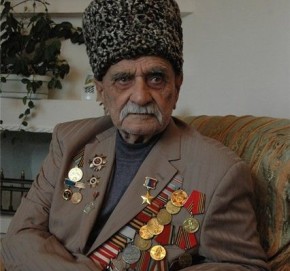 10
Abdulkhakim Isakovich Ismailov was a soldier in Red Army during World War II. He was photographed by Yevgeny Khaldei raising the flag of the Soviet Union over the Reichstag in Berlin on 2 May 1945,...
10
Abdulkhakim Isakovich Ismailov was a soldier in Red Army during World War II. He was photographed by Yevgeny Khaldei raising the flag of the Soviet Union over the Reichstag in Berlin on 2 May 1945,...
Palmiro Togliatti
 10
Palmiro Michele Nicola Togliatti was an Italian politician and leader of Italy's Communist party for nearly forty years, from 1927 until his death. Born into a middle-class family, Togliatti received...
10
Palmiro Michele Nicola Togliatti was an Italian politician and leader of Italy's Communist party for nearly forty years, from 1927 until his death. Born into a middle-class family, Togliatti received...
Исрафилов, Абас Исламович
 10
Исрафи́лов Аба́с Исла́мович — Герой Советского Союза, заместитель командира инженерно-сапёрного взвода 357-го гвардейского парашютно-десантного полка 103-й гвардейской воздушно-десантной дивизии в...
10
Исрафи́лов Аба́с Исла́мович — Герой Советского Союза, заместитель командира инженерно-сапёрного взвода 357-го гвардейского парашютно-десантного полка 103-й гвардейской воздушно-десантной дивизии в...
Vasily Chuikov
 9
Vasily Ivanovich Chuikov was a Soviet military commander and Marshal of the Soviet Union. He is best known for commanding the 62nd Army which saw heavy combat during the Battle of Stalingrad in the...
9
Vasily Ivanovich Chuikov was a Soviet military commander and Marshal of the Soviet Union. He is best known for commanding the 62nd Army which saw heavy combat during the Battle of Stalingrad in the...
Акаев, Юсуп Абдулабекович
 9
Юсу́п Абдулабе́кович Ака́ев — советский лётчик-штурмовик авиации Военно-морского флота СССР в годы Великой Отечественной войны, Герой Советского Союза (19.08.1944), майор (24.04.1948).
9
Юсу́п Абдулабе́кович Ака́ев — советский лётчик-штурмовик авиации Военно-морского флота СССР в годы Великой Отечественной войны, Герой Советского Союза (19.08.1944), майор (24.04.1948).
Мяготин, Николай Андреевич
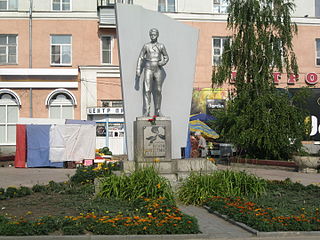 9
Никола́й Андре́евич Мяго́тин — советский школьник, в советское время получивший известность как пионер-герой, символ борца с кулачеством, наравне с Павликом Морозовым.
9
Никола́й Андре́евич Мяго́тин — советский школьник, в советское время получивший известность как пионер-герой, символ борца с кулачеством, наравне с Павликом Морозовым.
Nikolai Rimsky-Korsakov
 9
Nikolai Andreyevich Rimsky-Korsakov
was a Russian composer, a member of the group of composers known as The Five. He was a master of orchestration. His best-known orchestral compositions—Capriccio...
9
Nikolai Andreyevich Rimsky-Korsakov
was a Russian composer, a member of the group of composers known as The Five. He was a master of orchestration. His best-known orchestral compositions—Capriccio...
Hadi Taqtaş
 9
Möxämmäthadi Xäyrulla ulı Taqtaşev better known as Hadi Taqtaş was a Soviet–Tatar poet, writer and publicist.
9
Möxämmäthadi Xäyrulla ulı Taqtaşev better known as Hadi Taqtaş was a Soviet–Tatar poet, writer and publicist.
Salix Säydäş
 9
Säydäşev Salix Camaletdin ulı (pronounced aka Salix Säydäş, also spelled Salikh Saydash(ev) (Tatar Cyrillic: Сәйдәш(ев) Салих Җамалетдин улы; Russian: Сайда́шев Сали́х Замалетди́нович, Saydashev...
9
Säydäşev Salix Camaletdin ulı (pronounced aka Salix Säydäş, also spelled Salikh Saydash(ev) (Tatar Cyrillic: Сәйдәш(ев) Салих Җамалетдин улы; Russian: Сайда́шев Сали́х Замалетди́нович, Saydashev...
Hamzat Bek
 9
Hamzat Bek was the imam of Dagestan between 1832 and 1834. He was the second leader of the movement begun by his predecessor Ghazi Muhammad for the implementation of sharia in Dagestan. He fought...
9
Hamzat Bek was the imam of Dagestan between 1832 and 1834. He was the second leader of the movement begun by his predecessor Ghazi Muhammad for the implementation of sharia in Dagestan. He fought...
Gotfrid Hasanov
 9
Gottfried (Dzhabrail) Alievich Gasanov was a North Caucasian composer, Honored Artist of the RSFSR (1960), and a laureate of two Stalin Prizes.
9
Gottfried (Dzhabrail) Alievich Gasanov was a North Caucasian composer, Honored Artist of the RSFSR (1960), and a laureate of two Stalin Prizes.
Капиев, Эффенди Мансурович
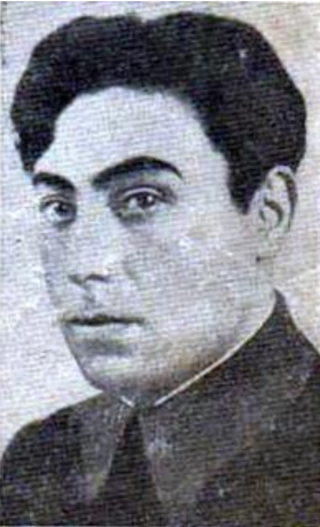 9
Эффенди Мансурович Капиев — дагестанский советский прозаик, литературовед, публицист, поэт, переводчик, писавший на русском, лакском и кумыкском языках.
9
Эффенди Мансурович Капиев — дагестанский советский прозаик, литературовед, публицист, поэт, переводчик, писавший на русском, лакском и кумыкском языках.
Салихов, Эсед Бабастанович
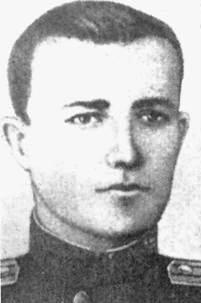 9
Эсед Бабастанович Салихов — командир батальона 247-го стрелкового полка 37-й стрелковой дивизии 22-й армии 2-го Прибалтийского фронта. Герой Советского Союза (посмертно).
9
Эсед Бабастанович Салихов — командир батальона 247-го стрелкового полка 37-й стрелковой дивизии 22-й армии 2-го Прибалтийского фронта. Герой Советского Союза (посмертно).
Said Afandi al-Chirkawi
 9
Said Afandi al-Chirkawi was a prominent scholar in Shafii mazhab and a spiritual master, or murshid. He was killed by a female suicide bomber on 28 August 2012.
9
Said Afandi al-Chirkawi was a prominent scholar in Shafii mazhab and a spiritual master, or murshid. He was killed by a female suicide bomber on 28 August 2012.
Ivan Bagramyan
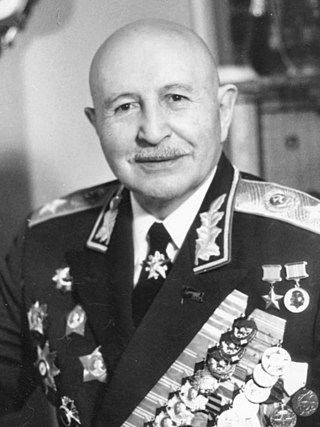 8
Ivan Khristoforovich Bagramyan, also known as Hovhannes Khachaturi Baghramyan, was a Soviet military commander and Marshal of the Soviet Union of Armenian origin.
8
Ivan Khristoforovich Bagramyan, also known as Hovhannes Khachaturi Baghramyan, was a Soviet military commander and Marshal of the Soviet Union of Armenian origin.
Afanasy Beloborodov
 8
Afanasy Pavlantyevich Beloborodov was a general in the Red Army during the Second World War who was twice awarded the title Hero of the Soviet Union. Between 1963 and 1968, he commanded the Moscow...
8
Afanasy Pavlantyevich Beloborodov was a general in the Red Army during the Second World War who was twice awarded the title Hero of the Soviet Union. Between 1963 and 1968, he commanded the Moscow...
Kosta Khetagurov
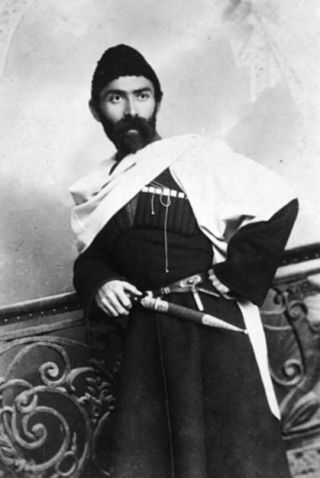 8
Konstantin (Kosta) Khetagkaty was a national poet of the Ossetian people who is generally regarded as the founder of Ossetian literature. He was also a talented painter and a notable public...
8
Konstantin (Kosta) Khetagkaty was a national poet of the Ossetian people who is generally regarded as the founder of Ossetian literature. He was also a talented painter and a notable public...
Jānis Fabriciuss
 7
Jānis Fabriciuss was a Latvian Soviet commander and commissar of the Red Army.
7
Jānis Fabriciuss was a Latvian Soviet commander and commissar of the Red Army.
Мубаряков, Арслан Котлыахметович
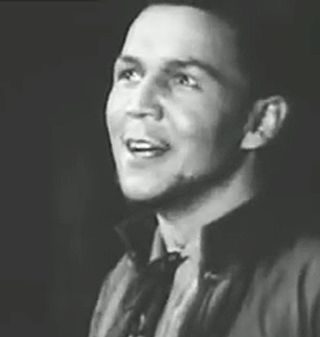 7
Арслан Котлыахметович Мубаря́ков — башкирский советский актёр, театральный режиссёр, драматург. Народный артист СССР (1955).
7
Арслан Котлыахметович Мубаря́ков — башкирский советский актёр, театральный режиссёр, драматург. Народный артист СССР (1955).
Mitrofan Nedelin
 7
Mitrofan Ivanovich Nedelin was a Soviet military commander who served as Chief Marshal of the Artillery in the Soviet Armed Forces.
7
Mitrofan Ivanovich Nedelin was a Soviet military commander who served as Chief Marshal of the Artillery in the Soviet Armed Forces.
Damdin Sükhbaatar
 7
Damdin Sükhbaatar was a Mongolian communist revolutionary, founding member of the Mongolian People's Party, and leader of the Mongolian partisan army that took Khüree during the Outer Mongolian...
7
Damdin Sükhbaatar was a Mongolian communist revolutionary, founding member of the Mongolian People's Party, and leader of the Mongolian partisan army that took Khüree during the Outer Mongolian...
Mustai Karim
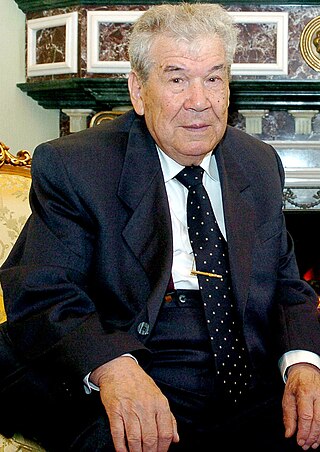 7
Mustai Karim was a Bashkir Soviet poet, writer and playwright. He was named People's Poet of the Bashkir ASSR (1963), Hero of Socialist Labour (1979), and winner of the Lenin Prize (1984) and the...
7
Mustai Karim was a Bashkir Soviet poet, writer and playwright. He was named People's Poet of the Bashkir ASSR (1963), Hero of Socialist Labour (1979), and winner of the Lenin Prize (1984) and the...
Vladimir Nemirovich-Danchenko
 6
Vladimir Ivanovich Nemirovich-Danchenko was a Soviet and Russian theatre director, writer, pedagogue, playwright, producer and theatre administrator, who founded the Moscow Art Theatre with his...
6
Vladimir Ivanovich Nemirovich-Danchenko was a Soviet and Russian theatre director, writer, pedagogue, playwright, producer and theatre administrator, who founded the Moscow Art Theatre with his...
Nikolai Kashirin
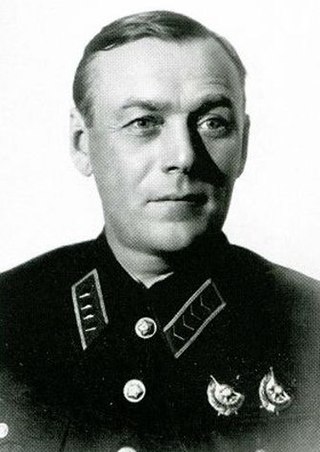 6
Nikolai Dmitrievich Kashirin was a Soviet Komandarm 2nd rank. He fought for the Imperial Russian Army in World War I, receiving the Order of Saint Vladimir and the Order of Saint Anna. He was a...
6
Nikolai Dmitrievich Kashirin was a Soviet Komandarm 2nd rank. He fought for the Imperial Russian Army in World War I, receiving the Order of Saint Vladimir and the Order of Saint Anna. He was a...
Peter the Great
 6
Peter I, commonly known as Peter the Great, was Tsar of all Russia from 1682, and the first Emperor of all Russia from 1721 until his death in 1725. He reigned jointly with his half-brother Ivan V...
6
Peter I, commonly known as Peter the Great, was Tsar of all Russia from 1682, and the first Emperor of all Russia from 1721 until his death in 1725. He reigned jointly with his half-brother Ivan V...
Mariya Tsukanova
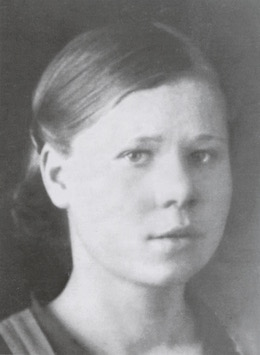 6
Mariya Nikitichna Tsukanova was a medical orderly in the 355th Independent Guards Naval Infantry Battalion of the Pacific Fleet during World War II. After she was killed in action in August 1945 she...
6
Mariya Nikitichna Tsukanova was a medical orderly in the 355th Independent Guards Naval Infantry Battalion of the Pacific Fleet during World War II. After she was killed in action in August 1945 she...
Maria Ilyinichna Ulyanova
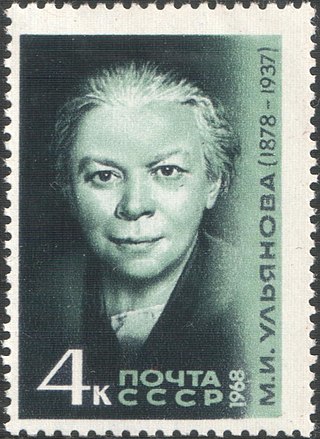 6
Maria Ilyinichna Ulyanova was a Russian Bolshevik revolutionary, politician, and the younger sister of Vladimir Lenin and Anna Ulyanova.
6
Maria Ilyinichna Ulyanova was a Russian Bolshevik revolutionary, politician, and the younger sister of Vladimir Lenin and Anna Ulyanova.
Qul Ghali
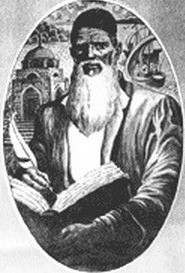 6
Qul Ghali was a famous Muslim Volga Bulgarian poet. His most famous poem is Qissa-i Yusuf, written in the Old Tatar language, which is not mutually intelligible with the modern Tatar, Bashkir and...
6
Qul Ghali was a famous Muslim Volga Bulgarian poet. His most famous poem is Qissa-i Yusuf, written in the Old Tatar language, which is not mutually intelligible with the modern Tatar, Bashkir and...
Vasily Lebedev-Kumach
 6
Vasily Ivanovich Lebedev-Kumach ; 5 August [O.S. 24 July] 1898 — 20 February 1949) was a Soviet poet and lyricist.
6
Vasily Ivanovich Lebedev-Kumach ; 5 August [O.S. 24 July] 1898 — 20 February 1949) was a Soviet poet and lyricist.
Henri Barbusse
 5
Henri Barbusse was a French novelist, short story writer, journalist, poet and political activist. He began his literary career in the 1890s as a Symbolist poet and continued as a neo-Naturalist...
5
Henri Barbusse was a French novelist, short story writer, journalist, poet and political activist. He began his literary career in the 1890s as a Symbolist poet and continued as a neo-Naturalist...
Nicholas Miklouho-Maclay
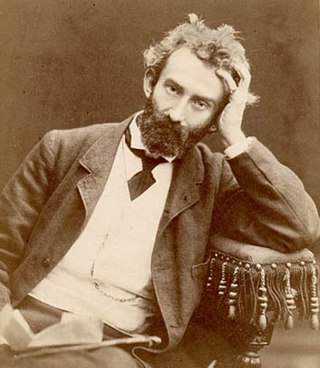 5
Nicholai Nikolaevich Miklouho-Maclay was a Russian explorer of Ukrainian origin. He worked as an ethnologist, anthropologist and biologist who became famous as one of the earliest scientists to...
5
Nicholai Nikolaevich Miklouho-Maclay was a Russian explorer of Ukrainian origin. He worked as an ethnologist, anthropologist and biologist who became famous as one of the earliest scientists to...
Boris Polevoy
 5
Boris Nikolayevich Polevoy was a Soviet and Russian writer, screenwriter, journalist and war correspondent. He is the author of the book Story of a Real Man about Soviet World War II fighter pilot...
5
Boris Nikolayevich Polevoy was a Soviet and Russian writer, screenwriter, journalist and war correspondent. He is the author of the book Story of a Real Man about Soviet World War II fighter pilot...
Jaroslav Hašek
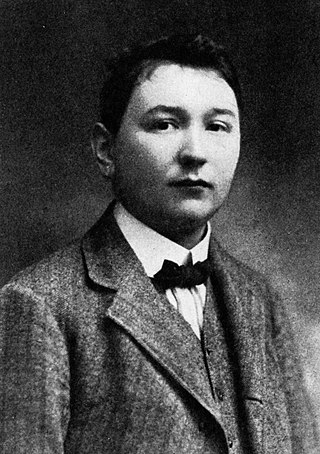 5
Jaroslav Hašek was a Czech writer, humorist, satirist, journalist, bohemian, first anarchist and then communist, and commissar of the Red Army against the Czechoslovak Legion. He is best known for...
5
Jaroslav Hašek was a Czech writer, humorist, satirist, journalist, bohemian, first anarchist and then communist, and commissar of the Red Army against the Czechoslovak Legion. He is best known for...
Назукин, Иван Андреевич
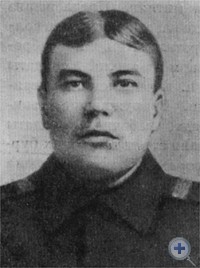 5
Иван Андреевич Назукин (1892—1920) — советский и партийный деятель, один из руководителей большевистского подполья в годы Гражданской войны (1917—1922) в Крыму. Участник VI Всероссийского съезда...
5
Иван Андреевич Назукин (1892—1920) — советский и партийный деятель, один из руководителей большевистского подполья в годы Гражданской войны (1917—1922) в Крыму. Участник VI Всероссийского съезда...
Andrey Voronikhin
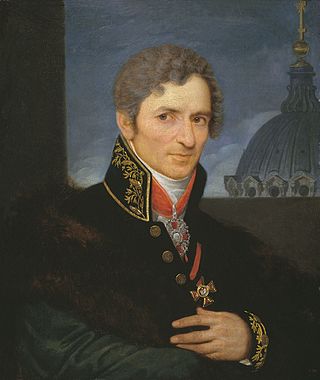 5
Andrey (Andrei) Nikiforovich Voronikhin was a Russian architect and painter. As a representative of classicism he was also one of the founders of the monumental Russian Empire style. Born a serf of...
5
Andrey (Andrei) Nikiforovich Voronikhin was a Russian architect and painter. As a representative of classicism he was also one of the founders of the monumental Russian Empire style. Born a serf of...
Макаев, Цахай Макашарипович
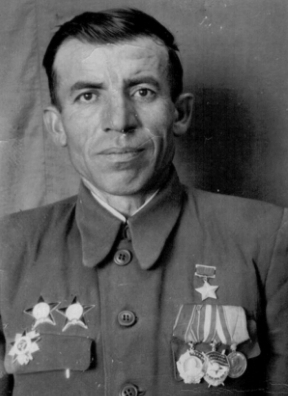 5
Цахай Макашарипович Макаев — участник Великой Отечественной войны, командир орудия 37-го отдельного гвардейского истребительно-противотанкового дивизиона, 35-й гвардейской Лозовской стрелковой...
5
Цахай Макашарипович Макаев — участник Великой Отечественной войны, командир орудия 37-го отдельного гвардейского истребительно-противотанкового дивизиона, 35-й гвардейской Лозовской стрелковой...
Aleksey Nikolayevich Tolstoy
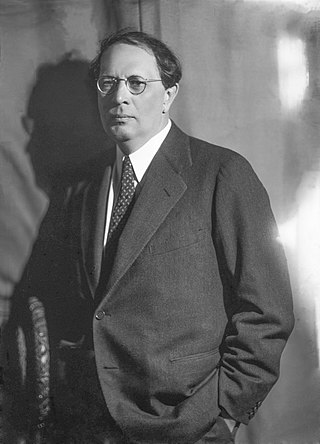 5
Aleksey Nikolayevich Tolstoy was a Russian writer whose works span across many genres, but mainly belonged to science fiction and historical fiction.
5
Aleksey Nikolayevich Tolstoy was a Russian writer whose works span across many genres, but mainly belonged to science fiction and historical fiction.
Boris Pasternak
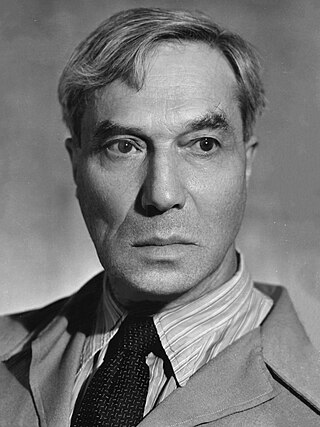 5
Boris Leonidovich Pasternak was a Russian poet, novelist, composer, and literary translator.
5
Boris Leonidovich Pasternak was a Russian poet, novelist, composer, and literary translator.
Alexander Galich (writer)
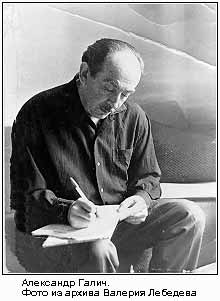 5
Alexander Arkadievich Galich was a Soviet poet, screenwriter, playwright, singer-songwriter, and dissident.
5
Alexander Arkadievich Galich was a Soviet poet, screenwriter, playwright, singer-songwriter, and dissident.
Stepan Erzya
 5
Stepan Dmitrievich Erzia (Nefyodov) (Russian: Степа́н Дми́триевич Э́рьзя (Нефёдов); November 8 [O.S. October 27] 1876 – 24 November 1959), also known as Stefan Erzia, was an Erzya Mordvin sculptor...
5
Stepan Dmitrievich Erzia (Nefyodov) (Russian: Степа́н Дми́триевич Э́рьзя (Нефёдов); November 8 [O.S. October 27] 1876 – 24 November 1959), also known as Stefan Erzia, was an Erzya Mordvin sculptor...
Heydar Aliyev
 5
Heydar Alirza oghlu Aliyev was an Azerbaijani politician who was a Soviet party boss in the Azerbaijan Soviet Socialist Republic from 1969 to 1982, and the third president of Azerbaijan from October...
5
Heydar Alirza oghlu Aliyev was an Azerbaijani politician who was a Soviet party boss in the Azerbaijan Soviet Socialist Republic from 1969 to 1982, and the third president of Azerbaijan from October...
Gara Garayev
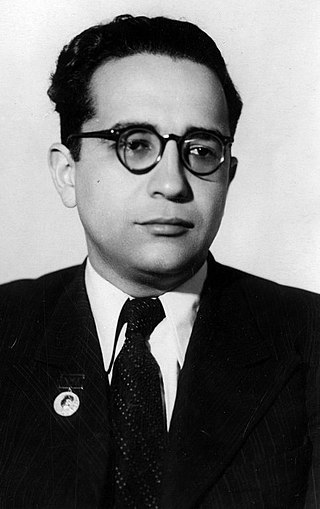 5
Gara Abulfaz oghlu Garayev, also spelled as Qara Qarayev or Kara Karayev, was a prominent Soviet Azerbaijani composer. Garayev wrote nearly 110 musical pieces, including ballets, operas, symphonic...
5
Gara Abulfaz oghlu Garayev, also spelled as Qara Qarayev or Kara Karayev, was a prominent Soviet Azerbaijani composer. Garayev wrote nearly 110 musical pieces, including ballets, operas, symphonic...
Sheikh Mansur
 5
Sheikh Mansur was a Chechen military commander and Islamic leader who led an anti-Russian North Caucasian resistance, known as the Sheikh Mansur Movement. He was influential in the resistance against...
5
Sheikh Mansur was a Chechen military commander and Islamic leader who led an anti-Russian North Caucasian resistance, known as the Sheikh Mansur Movement. He was influential in the resistance against...
Rainis
 4
Jānis Pliekšāns, known by his pseudonym Rainis, was a Latvian poet, playwright, translator, and politician. Rainis' works include the classic plays Uguns un nakts and Indulis un Ārija, and a highly...
4
Jānis Pliekšāns, known by his pseudonym Rainis, was a Latvian poet, playwright, translator, and politician. Rainis' works include the classic plays Uguns un nakts and Indulis un Ārija, and a highly...
Pavel Rybalko
 4
Pavel Semyonovich Rybalko was a commander of armoured troops in the Red Army during and following World War II.
4
Pavel Semyonovich Rybalko was a commander of armoured troops in the Red Army during and following World War II.
Игнатов, Геннадий Петрович
 4
Геннадий Петрович Игнатов, другой вариант имени — Гений — Герой Советского Союза, партизан-разведчик.
4
Геннадий Петрович Игнатов, другой вариант имени — Гений — Герой Советского Союза, партизан-разведчик.
Vera Voloshina
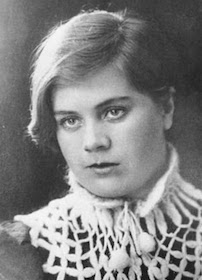 4
Vera Danilovna Voloshina was a Russian partisan who after joining the Red Army took part in subversive activities against the Nazis in World War II. After being ambushed by the Germans in November...
4
Vera Danilovna Voloshina was a Russian partisan who after joining the Red Army took part in subversive activities against the Nazis in World War II. After being ambushed by the Germans in November...
Двужильный, Юрий Михайлович
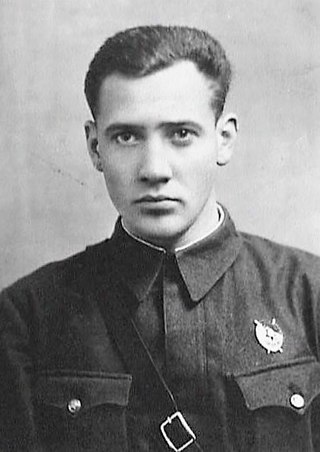 4
Юрий Михайлович Двужильный — Герой Советского Союза, командир батальона, капитан.
4
Юрий Михайлович Двужильный — Герой Советского Союза, командир батальона, капитан.
Roza Shanina
 4
Roza Georgiyevna Shanina was a Soviet sniper during World War II who was credited with over 50 kills. Shanina volunteered for the military after the death of her brother in 1941 and chose to be a...
4
Roza Georgiyevna Shanina was a Soviet sniper during World War II who was credited with over 50 kills. Shanina volunteered for the military after the death of her brother in 1941 and chose to be a...
Магомедов, Ахмед Мусабекович
 4
Ахмед Мусабекович Магомедов — российский борец вольного стиля, грепплер.
4
Ахмед Мусабекович Магомедов — российский борец вольного стиля, грепплер.
Nizami Ganjavi
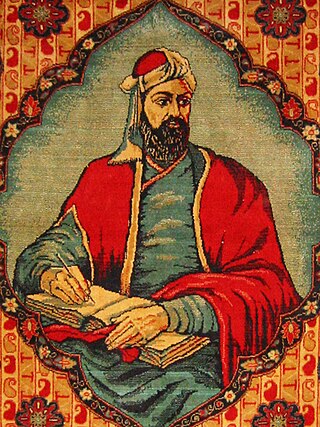 4
Nizami Ganjavi, Nizami Ganje'i, Nizami, or Nezāmi, whose formal name was Jamal ad-Dīn Abū Muḥammad Ilyās ibn-Yūsuf ibn-Zakkī, was a 12th-century Muslim poet. Nizami is considered the greatest...
4
Nizami Ganjavi, Nizami Ganje'i, Nizami, or Nezāmi, whose formal name was Jamal ad-Dīn Abū Muḥammad Ilyās ibn-Yūsuf ibn-Zakkī, was a 12th-century Muslim poet. Nizami is considered the greatest...
Alexander Gorbatov
 3
Alexander Vasilyevich Gorbatov was a Russian and Soviet officer who served as an officer in the Imperial Russian Army during the First World War and as a colonel-general in the Red Army during the...
3
Alexander Vasilyevich Gorbatov was a Russian and Soviet officer who served as an officer in the Imperial Russian Army during the First World War and as a colonel-general in the Red Army during the...
Gaidar Gadzhiyev
 3
Gaidar Malikovich Gadzhiyev was a Russian major general of the Strategic Missile Troops.
3
Gaidar Malikovich Gadzhiyev was a Russian major general of the Strategic Missile Troops.
Котик, Валентин Александрович
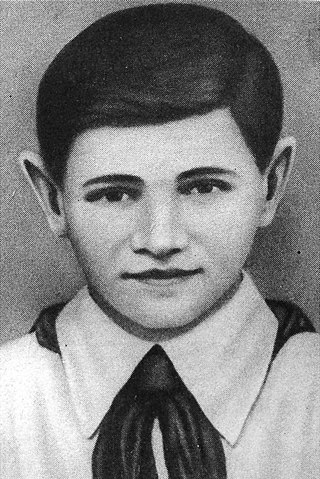 3
Валенти́н Алекса́ндрович Ко́тик
; 11 февраля 1930 — 17 февраля 1944) — советский пионер-герой, участник Великой отечественной войны, партизан-разведчик. Один из самых молодых Героев Советского...
3
Валенти́н Алекса́ндрович Ко́тик
; 11 февраля 1930 — 17 февраля 1944) — советский пионер-герой, участник Великой отечественной войны, партизан-разведчик. Один из самых молодых Героев Советского...
Усманов, Шамиль Хайруллович
 3
Шамиль Хайруллович Усманов — татарский советский писатель, драматург и политический деятель.
3
Шамиль Хайруллович Усманов — татарский советский писатель, драматург и политический деятель.
Мирсай Амир
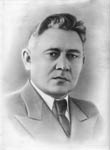 3
Мирсай Амир — татарский прозаик и драматург, переводчик, журналист, государственный и общественный деятель, заслуженный деятель искусств Татарской АССР (1945).
3
Мирсай Амир — татарский прозаик и драматург, переводчик, журналист, государственный и общественный деятель, заслуженный деятель искусств Татарской АССР (1945).
Ахунов, Гарифзян Ахунзянович
 3
Гарифзян Ахунзянович Ахунов — заслуженный деятель искусств РСФСР, народный писатель Татарстана, видный государственный и общественный деятель, лауреат премии Татарской АССР им. Габдуллы Тукая.
3
Гарифзян Ахунзянович Ахунов — заслуженный деятель искусств РСФСР, народный писатель Татарстана, видный государственный и общественный деятель, лауреат премии Татарской АССР им. Габдуллы Тукая.
Каюм Насыри
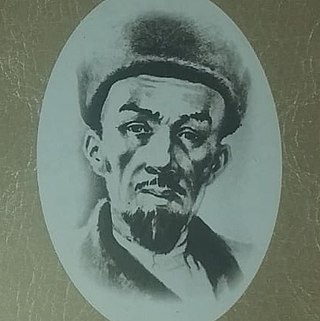 3
Габделькаюм Габденнасырович Насыров — татарский учёный-этнограф, литератор и просветитель XIX века, автор более 40 научных работ.
3
Габделькаюм Габденнасырович Насыров — татарский учёный-этнограф, литератор и просветитель XIX века, автор более 40 научных работ.
Sergey Preminin
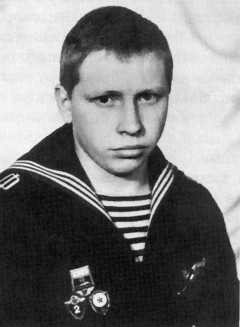 3
Sergey Anatolievich Preminin was a Soviet Russian sailor who, after an explosion aboard nuclear submarine K-219, prevented an impending nuclear meltdown by manually forcing damaged control rods into...
3
Sergey Anatolievich Preminin was a Soviet Russian sailor who, after an explosion aboard nuclear submarine K-219, prevented an impending nuclear meltdown by manually forcing damaged control rods into...
Valery Gavrilin
 3
Valery Aleksandrovich Gavrilin (Russian: Валерий Александрович Гаврилин, was a Soviet and Russian composer. People's Artist of the RSFSR.
3
Valery Aleksandrovich Gavrilin (Russian: Валерий Александрович Гаврилин, was a Soviet and Russian composer. People's Artist of the RSFSR.
Vladimir Leontyevich Komarov
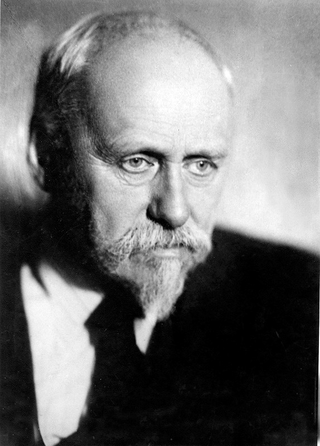 3
Vladimir Leontyevich Komarov was a Russian and Soviet botanist.
3
Vladimir Leontyevich Komarov was a Russian and Soviet botanist.
Timur Frunze
 3
Timur Mikhailovich Frunze was a Soviet fighter pilot and posthumous recipient of the title Hero of the Soviet Union. He was the son of Red Army commander and People's Commissar for Military Affairs...
3
Timur Mikhailovich Frunze was a Soviet fighter pilot and posthumous recipient of the title Hero of the Soviet Union. He was the son of Red Army commander and People's Commissar for Military Affairs...
Olga Bergholz
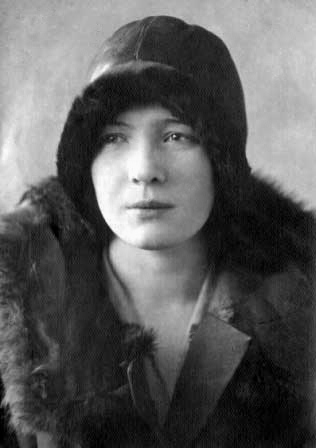 3
Olga Fyodorovna Bergholz was a Soviet and Russian poet, writer, playwright and journalist. She is most famous for her work on the Leningrad radio during the city's blockade, when she became the...
3
Olga Fyodorovna Bergholz was a Soviet and Russian poet, writer, playwright and journalist. She is most famous for her work on the Leningrad radio during the city's blockade, when she became the...
Петрова, Галина Леонидовна
 3
Гали́на Леони́довна Петро́ва — советская и российская актриса театра и кино. Заслуженная артистка Российской Федерации (1997).
3
Гали́на Леони́довна Петро́ва — советская и российская актриса театра и кино. Заслуженная артистка Российской Федерации (1997).
Valeriya Gnarovskaya
 3
Valeriya Osipovna Gnarovskaya was a medic in the 907th Rifle Regiment who fought on the Stalingrad Front in World War II. On 23 September 1943, when a German tank broke through the Soviet line of...
3
Valeriya Osipovna Gnarovskaya was a medic in the 907th Rifle Regiment who fought on the Stalingrad Front in World War II. On 23 September 1943, when a German tank broke through the Soviet line of...
Ижорский батальон (фильм)
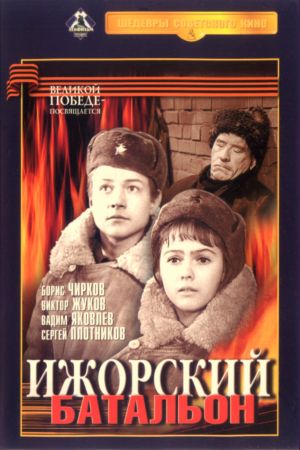 3
«Ижо́рский батальо́н» — советский чёрно-белый художественный фильм, поставленный на Киностудии «Ленфильм» в 1972 году режиссёром Геннадием Казанским. Героическая киноповесть.
3
«Ижо́рский батальо́н» — советский чёрно-белый художественный фильм, поставленный на Киностудии «Ленфильм» в 1972 году режиссёром Геннадием Казанским. Героическая киноповесть.
Vasily Margelov
 3
Vasily Filippovich Margelov was a Red Army General who was the commander of the Soviet Airborne Forces (VDV) from 1954 to 1959 and from 1961 to 1979. Margelov modernized the VDV and was a Hero of the...
3
Vasily Filippovich Margelov was a Red Army General who was the commander of the Soviet Airborne Forces (VDV) from 1954 to 1959 and from 1961 to 1979. Margelov modernized the VDV and was a Hero of the...
Магомедов, Расул Магомедович (историк)
 3
Расу́л Магоме́дович Магоме́дов — советский и российский учёный: историк-кавказовед, этнограф, этнолог, археолог, государственный и общественный деятель, просветитель. Основоположник исторической...
3
Расу́л Магоме́дович Магоме́дов — советский и российский учёный: историк-кавказовед, этнограф, этнолог, археолог, государственный и общественный деятель, просветитель. Основоположник исторической...
Ivan Golubets
 3
Ivan Karpovich Golubets was a Soviet sailor with the Black Sea Fleet. He was posthumously made a Hero of the Soviet Union.
3
Ivan Karpovich Golubets was a Soviet sailor with the Black Sea Fleet. He was posthumously made a Hero of the Soviet Union.
Nikolay Krylov (marshal)
 3
Nikolai Ivanovich Krylov was a Russian Marshal of the Soviet Union. He was commander of the Strategic Missile Troops from 1963 to 1972.
3
Nikolai Ivanovich Krylov was a Russian Marshal of the Soviet Union. He was commander of the Strategic Missile Troops from 1963 to 1972.
Mariya Polivanova
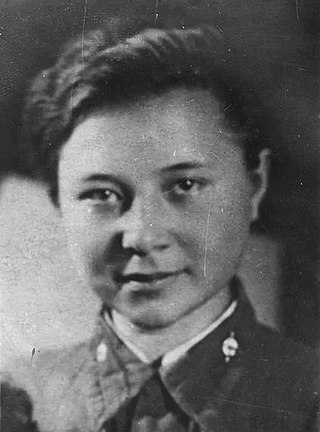 3
Mariya Semyonovna Polivanova was a Soviet sniper during World War II. She was killed in action together with Natalya Kovshova on 14 August 1942, and was posthumously awarded the title of Hero of the...
3
Mariya Semyonovna Polivanova was a Soviet sniper during World War II. She was killed in action together with Natalya Kovshova on 14 August 1942, and was posthumously awarded the title of Hero of the...
Камал, Шариф Камалетдинович
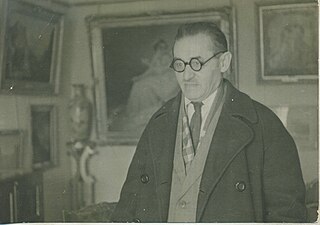 3
Шариф Камал — советский татарский писатель, драматург, публицист и переводчик, общественный деятель, один из крупнейших представителей татарской литературы начала XX века и основоположников...
3
Шариф Камал — советский татарский писатель, драматург, публицист и переводчик, общественный деятель, один из крупнейших представителей татарской литературы начала XX века и основоположников...
Räşit Wahapov
 3
Räşit Wahap ulı Wahapov was a Tatar singer (tenor), awarded with People's Artist of TASSR (1957). Wahapov was "one of the most actively and successfully performing Tatar singers in 1940s and enjoyed...
3
Räşit Wahap ulı Wahapov was a Tatar singer (tenor), awarded with People's Artist of TASSR (1957). Wahapov was "one of the most actively and successfully performing Tatar singers in 1940s and enjoyed...
Котков, Сергей Иванович
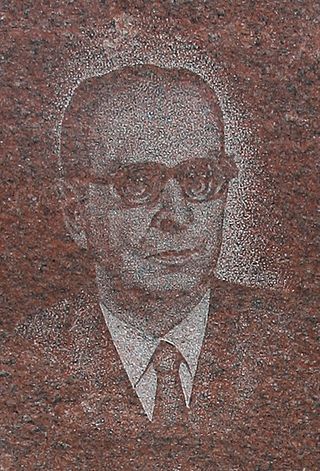 3
Серге́й Ива́нович Котко́в — советский лингвист, диалектолог.
3
Серге́й Ива́нович Котко́в — советский лингвист, диалектолог.
Inessa Armand
 3
Inessa Fyodorovna Armand was a French-Russian communist politician, member of the Bolsheviks and a feminist who spent most of her life in Russia. Armand, being an important figure in the...
3
Inessa Fyodorovna Armand was a French-Russian communist politician, member of the Bolsheviks and a feminist who spent most of her life in Russia. Armand, being an important figure in the...
Гасанов, Генрих Алиевич
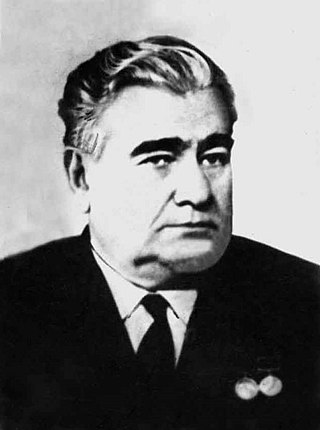 3
Генрих Алиевич Гаса́нов — советский судостроитель, доктор технических наук, специалист в области кораблестроения и проектирования корабельных паровых котлов и парогенераторов, генеральный конструктор...
3
Генрих Алиевич Гаса́нов — советский судостроитель, доктор технических наук, специалист в области кораблестроения и проектирования корабельных паровых котлов и парогенераторов, генеральный конструктор...
Улица Фатыха Карима (Казань)
 3
Улица Фатыха Карима — улица в Вахитовском районе Казани. Названа в честь поэта Фатыха Карима.
3
Улица Фатыха Карима — улица в Вахитовском районе Казани. Названа в честь поэта Фатыха Карима.
Abdulla Aliş
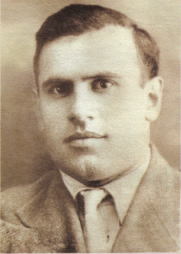 3
Alişev Ğabdullacan Ğäbdelbari ulı, best known as Abdulla Aliş, was a Soviet Tatar poet, playwright, writer and resistance fighter.
3
Alişev Ğabdullacan Ğäbdelbari ulı, best known as Abdulla Aliş, was a Soviet Tatar poet, playwright, writer and resistance fighter.
Арухов, Загир Сабирович
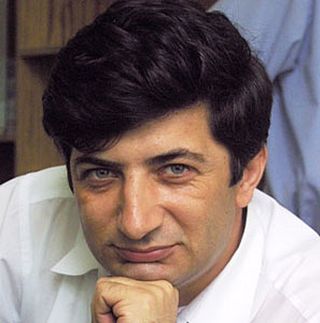 3
Заги́р Саби́рович А́рухов — российский государственный деятель, Министр по национальной политике, делам религий и внешним связям Республики Дагестан (2003—2005).
3
Заги́р Саби́рович А́рухов — российский государственный деятель, Министр по национальной политике, делам религий и внешним связям Республики Дагестан (2003—2005).
Maksim Passar
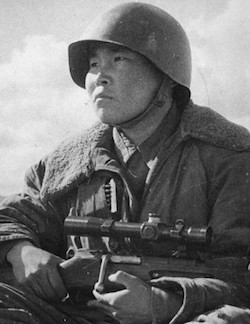 3
Maksim Aleksandrovich Passar was a Soviet sniper in the Red Army during World War II credited with killing 237 enemy soldiers. Decades after he was killed in action during the war he was posthumously...
3
Maksim Aleksandrovich Passar was a Soviet sniper in the Red Army during World War II credited with killing 237 enemy soldiers. Decades after he was killed in action during the war he was posthumously...
Попова, Александра Васильевна
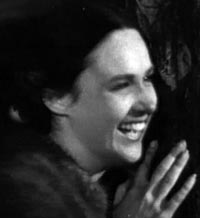 3
Александра Васильевна Попова — советская актриса театра и кино, в 1930-х годах в титрах фильмов указана как Алла Гардер, в 1940-х — как Алла Попова.
3
Александра Васильевна Попова — советская актриса театра и кино, в 1930-х годах в титрах фильмов указана как Алла Гардер, в 1940-х — как Алла Попова.
Osman Kasaev
 3
Osman Musayevich Kasayev was a Karachay Major in the Soviet Army during World War II who commanded a partisan detachment after his artillery division was defeated by the Germans during Operation...
3
Osman Musayevich Kasayev was a Karachay Major in the Soviet Army during World War II who commanded a partisan detachment after his artillery division was defeated by the Germans during Operation...
Mirza Hasan Alkadari
 3
Mirza Hasan Alkadari was a North Caucasian Islamic jurist (faqih), historian, poet, educator in pre-revolutionary Dagestan.
3
Mirza Hasan Alkadari was a North Caucasian Islamic jurist (faqih), historian, poet, educator in pre-revolutionary Dagestan.
Нажмудин Гоцинский
 3
Нажмуди́н Гоци́нский или Нажмуди́н Доного́, Нажм-ад-Дин ал-Хуци — северокавказский религиозный, военный и политический деятель. Учёный-арабист, алим и поэт. Муфтий Союза объединённых горцев Северного...
3
Нажмуди́н Гоци́нский или Нажмуди́н Доного́, Нажм-ад-Дин ал-Хуци — северокавказский религиозный, военный и политический деятель. Учёный-арабист, алим и поэт. Муфтий Союза объединённых горцев Северного...
Махачев, Гаджи Нухиевич
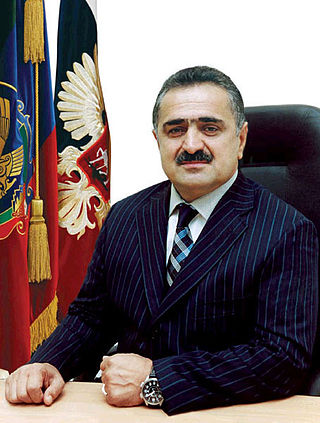 3
Гаджи́ Нухи́евич Маха́чев — российский общественный и государственный деятель, доктор юридических наук, профессор.
Назначался на должность заместителя Председателя Правительства Республики Дагестан,...
3
Гаджи́ Нухи́евич Маха́чев — российский общественный и государственный деятель, доктор юридических наук, профессор.
Назначался на должность заместителя Председателя Правительства Республики Дагестан,...